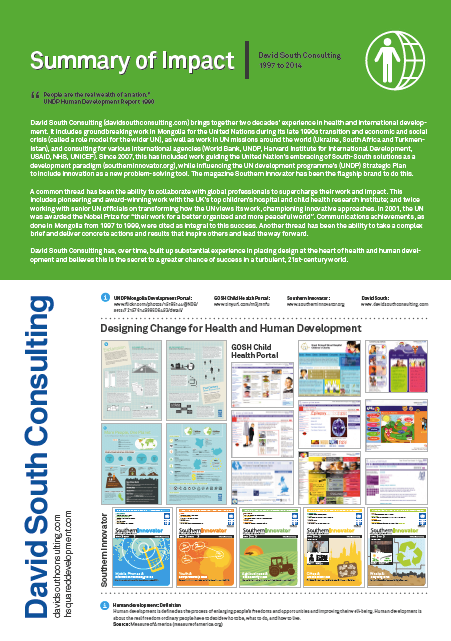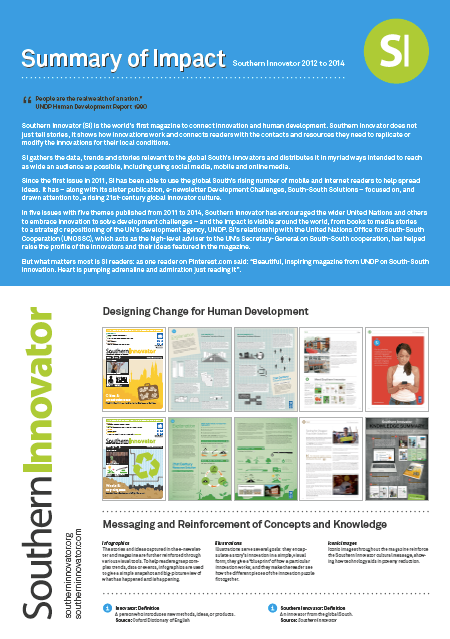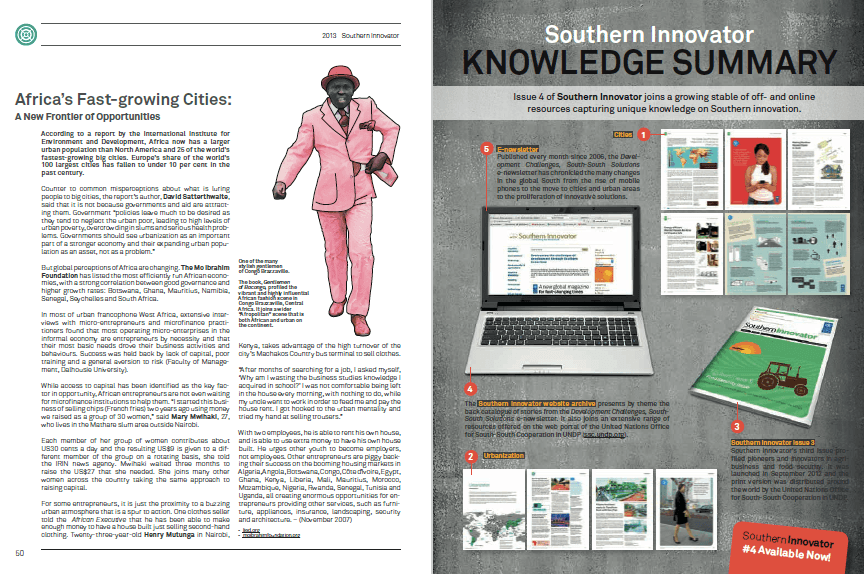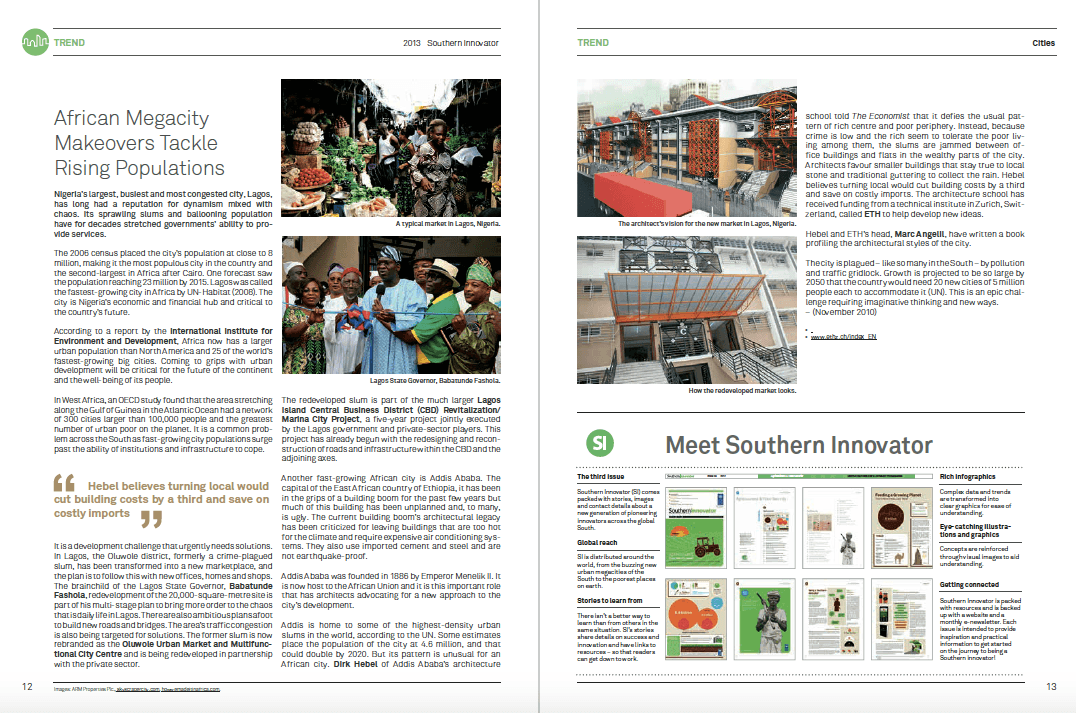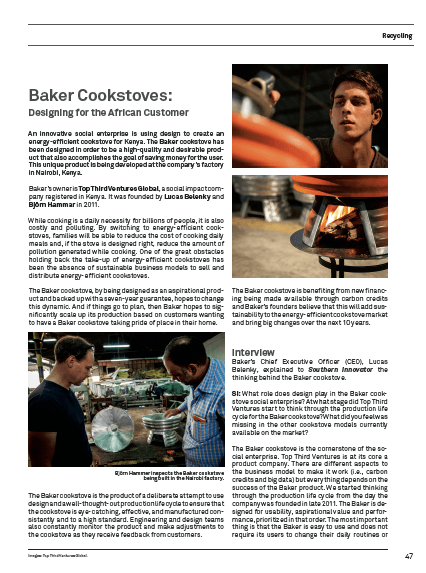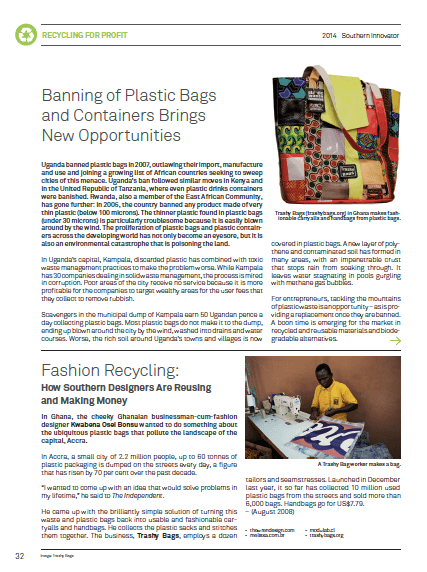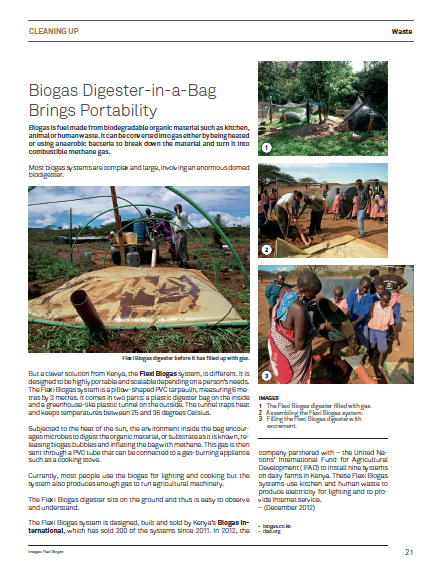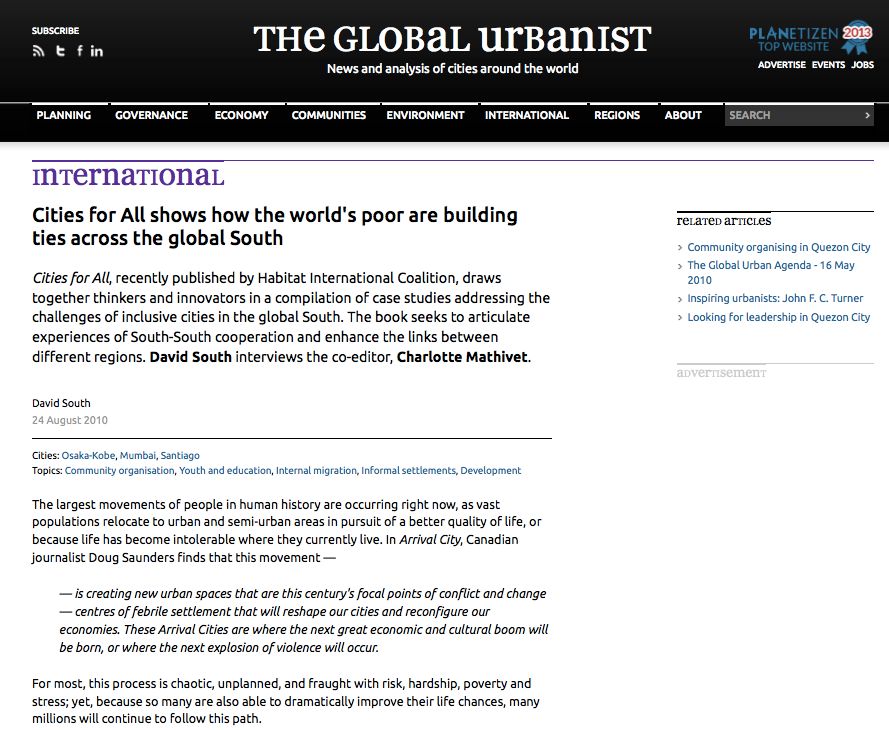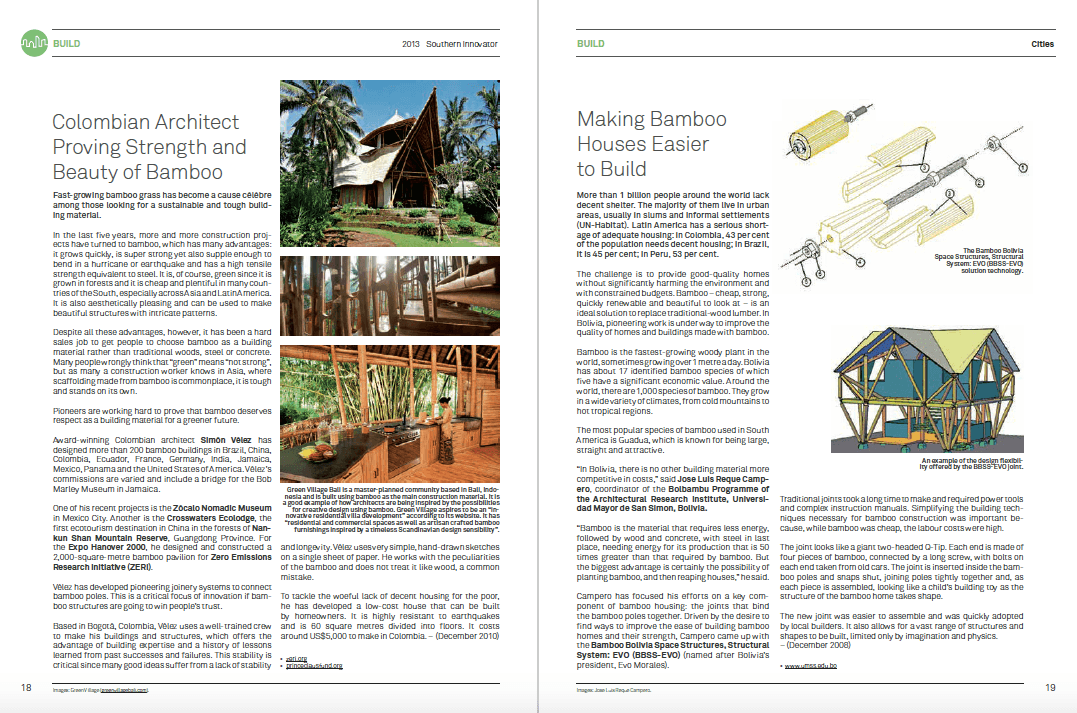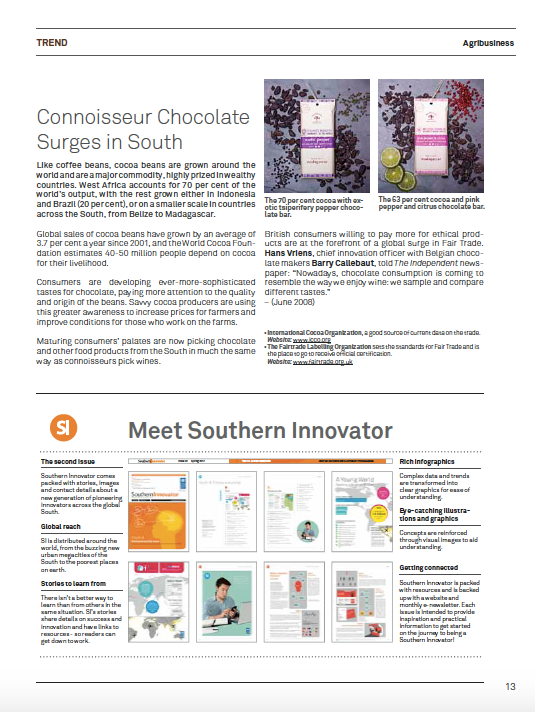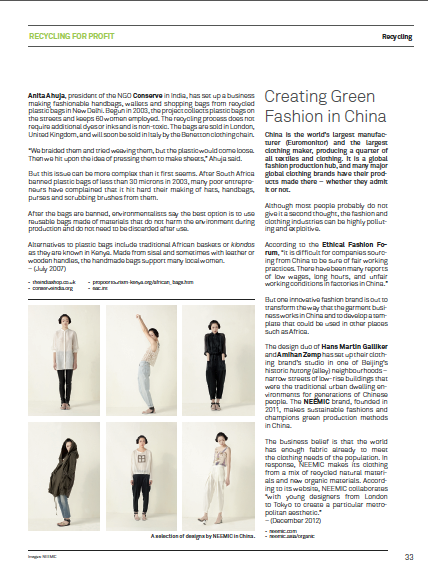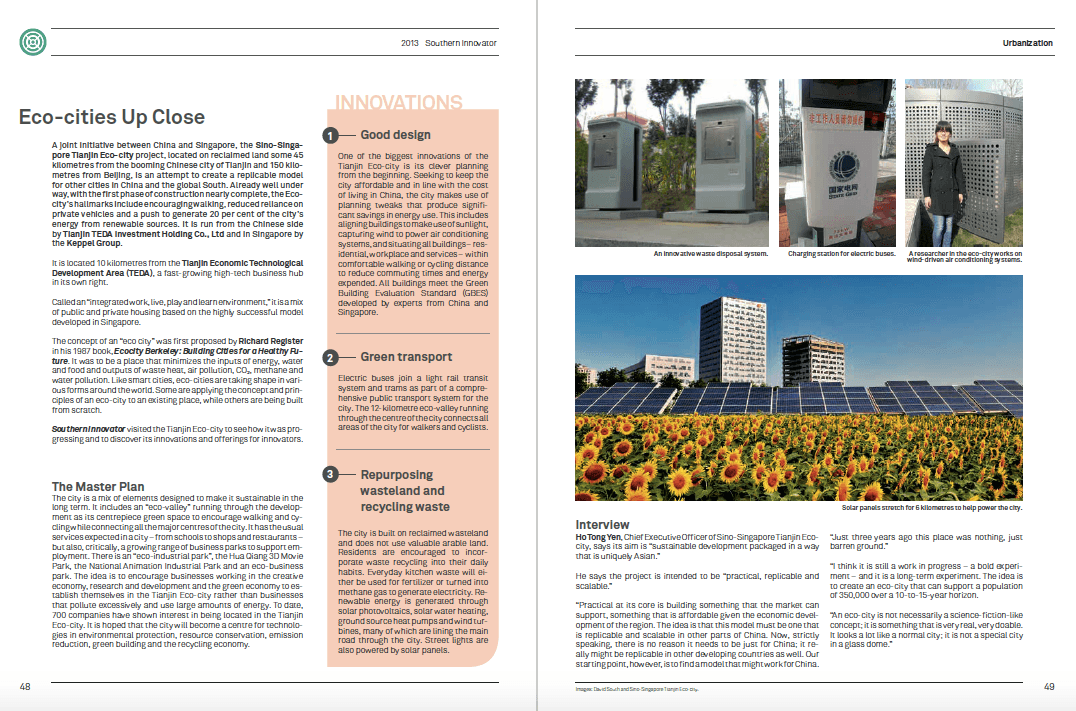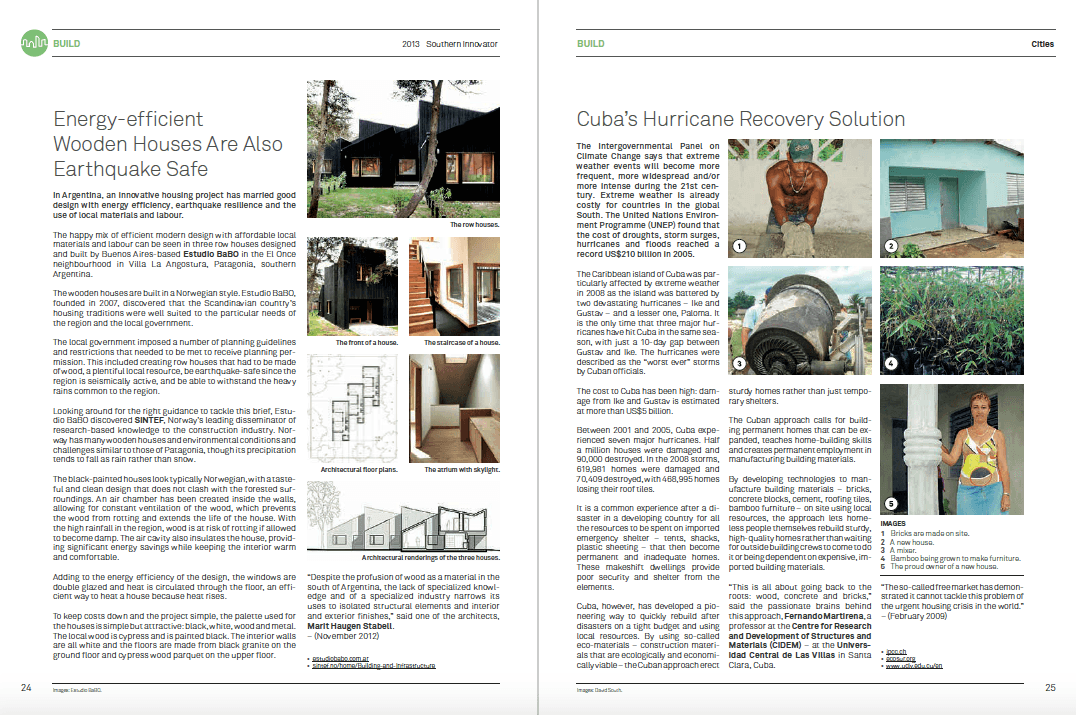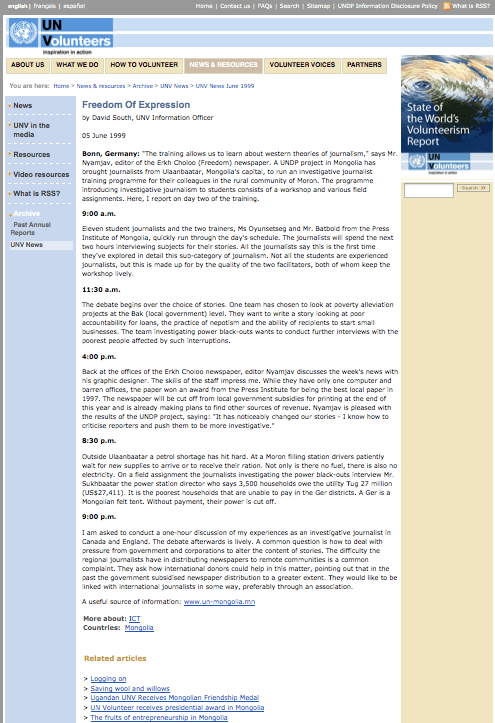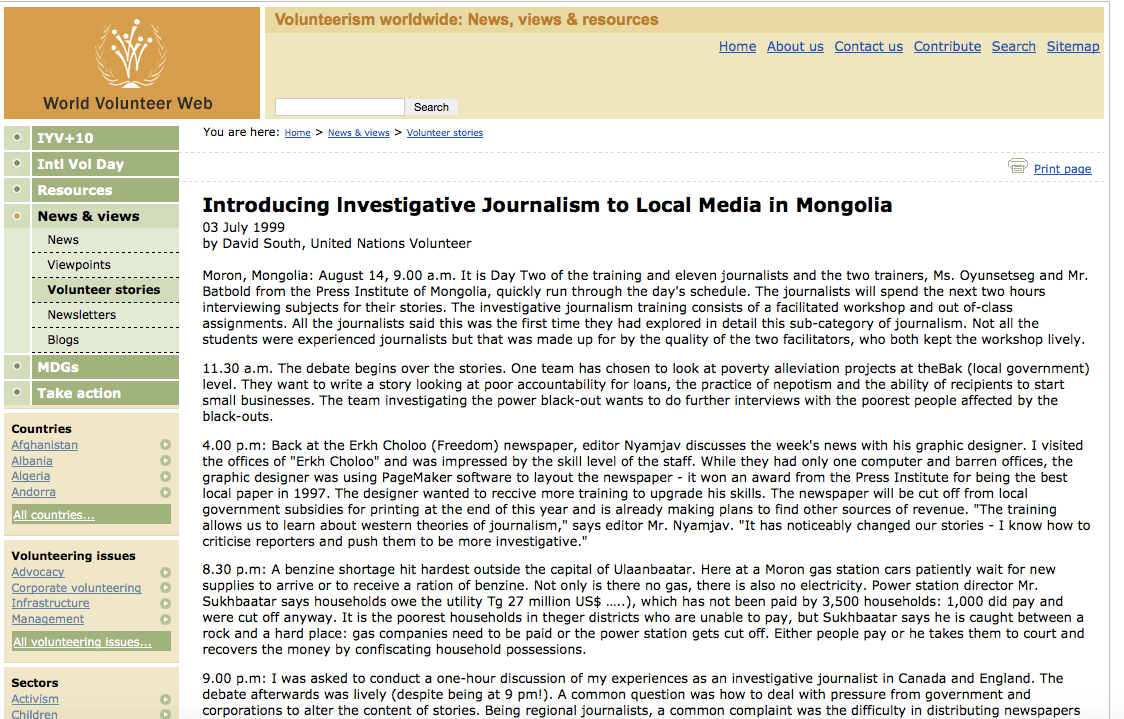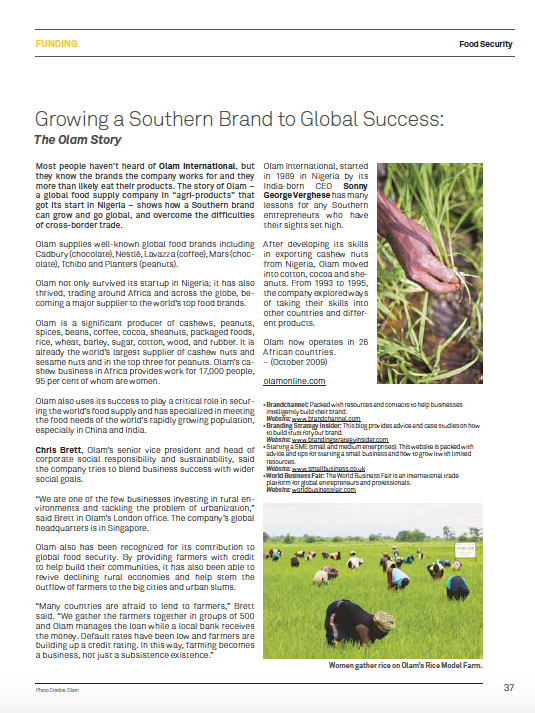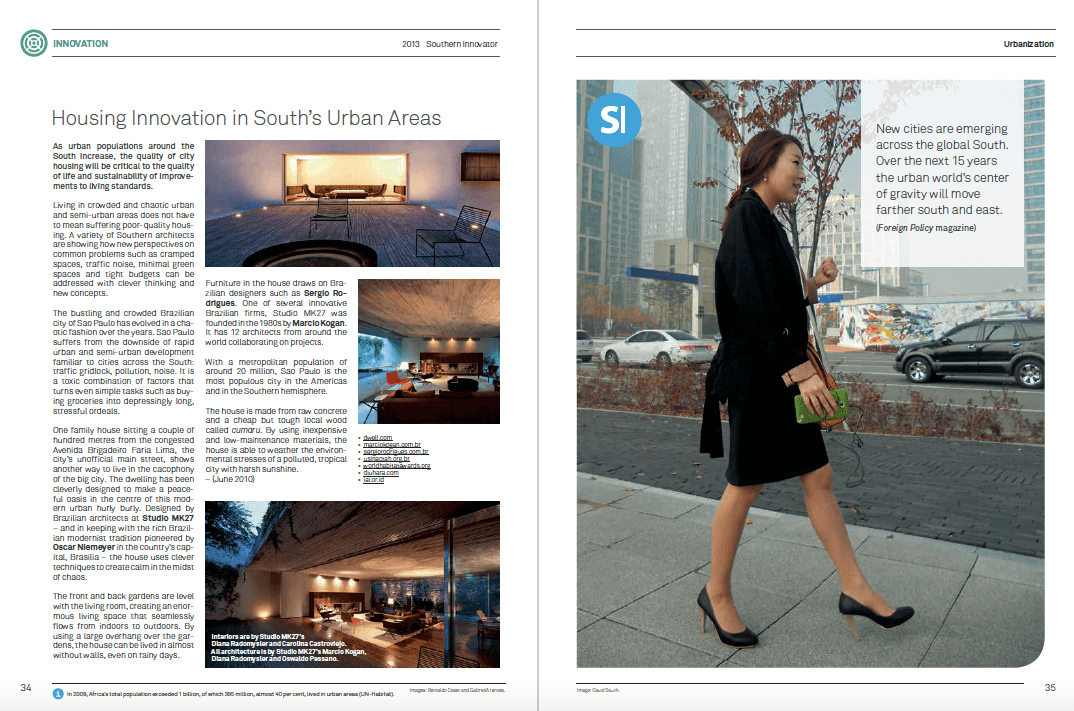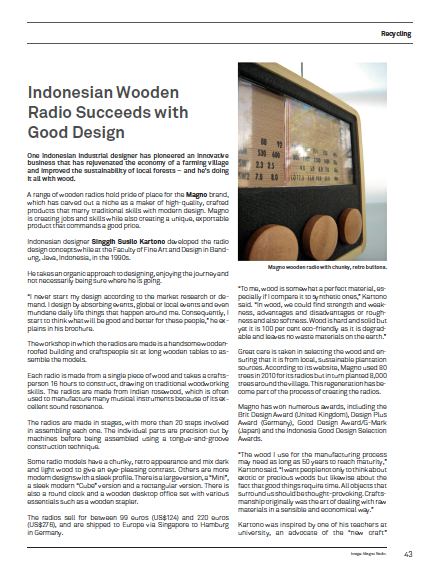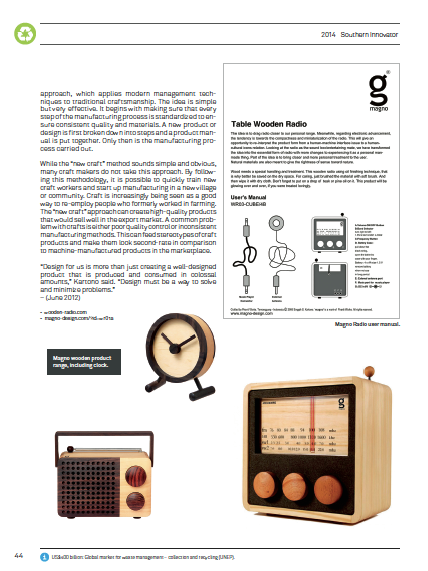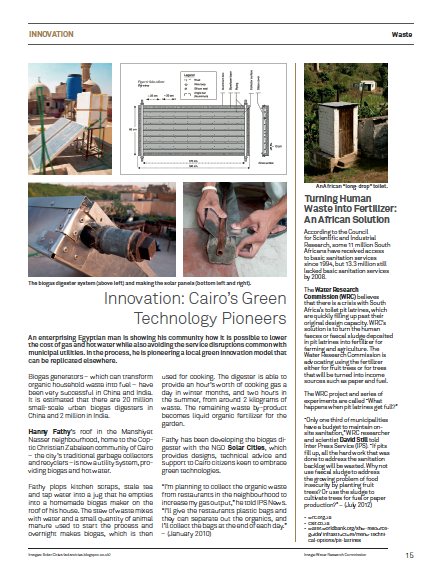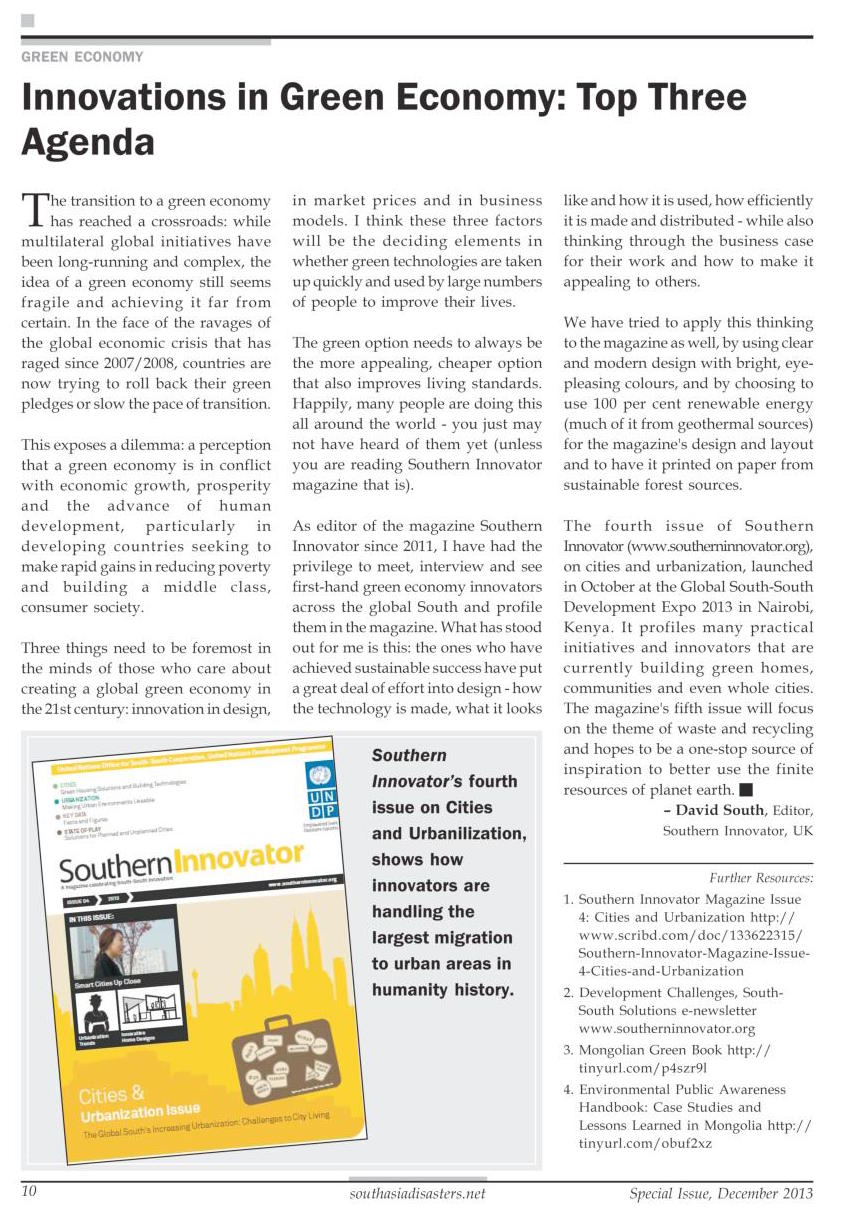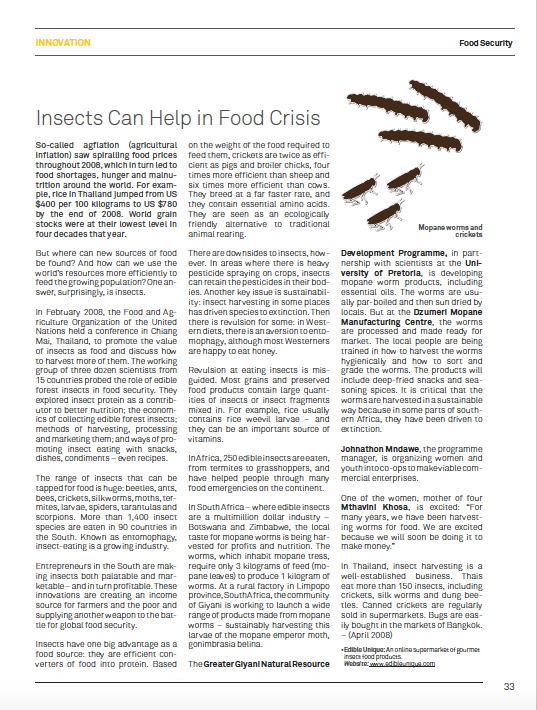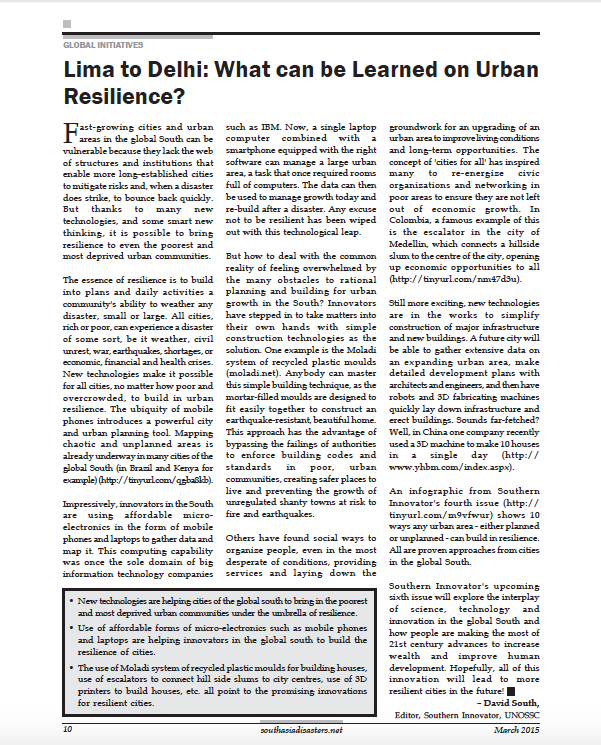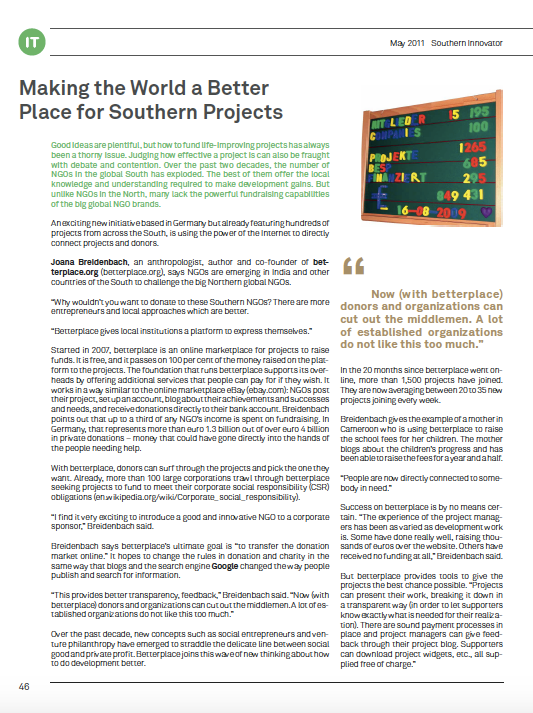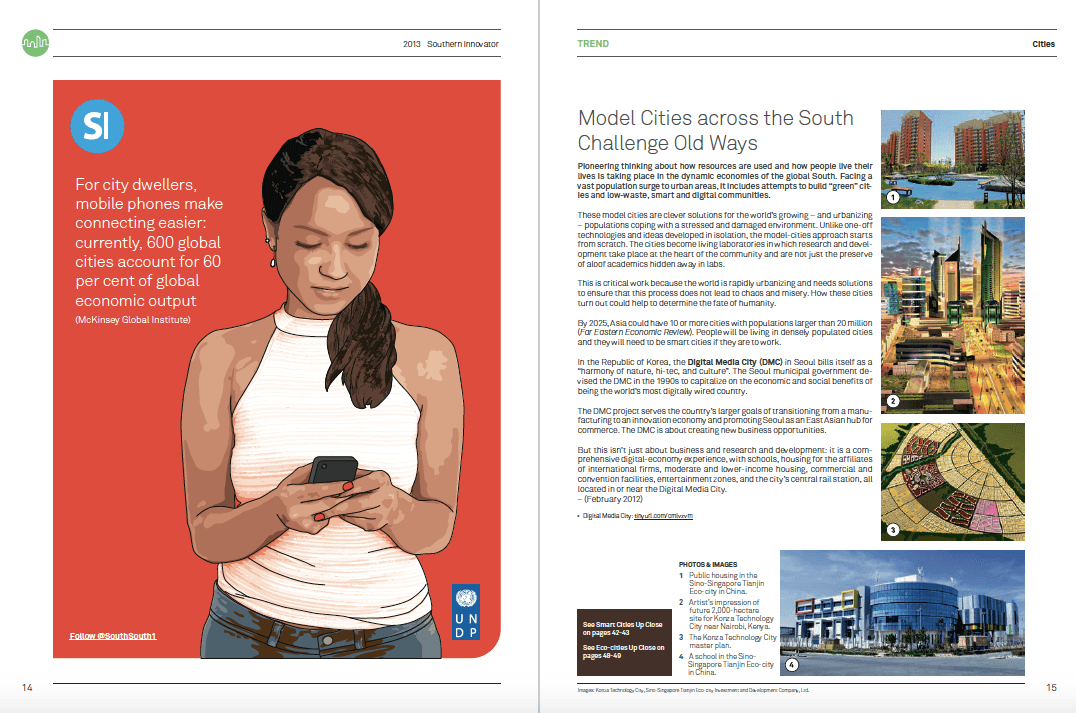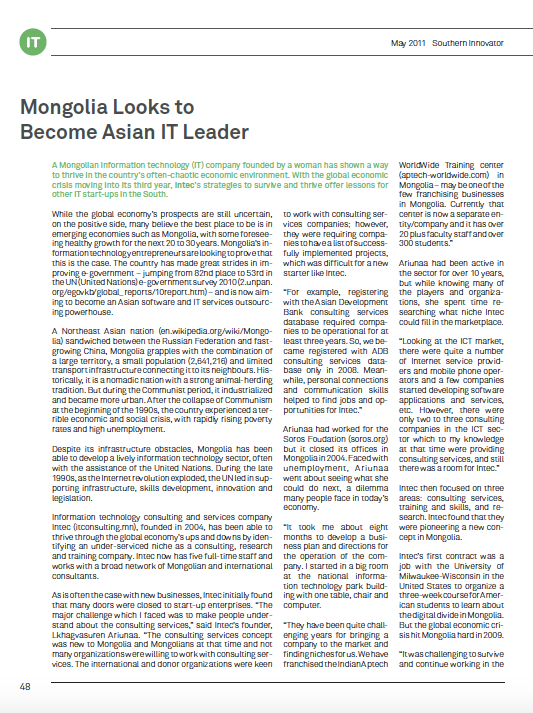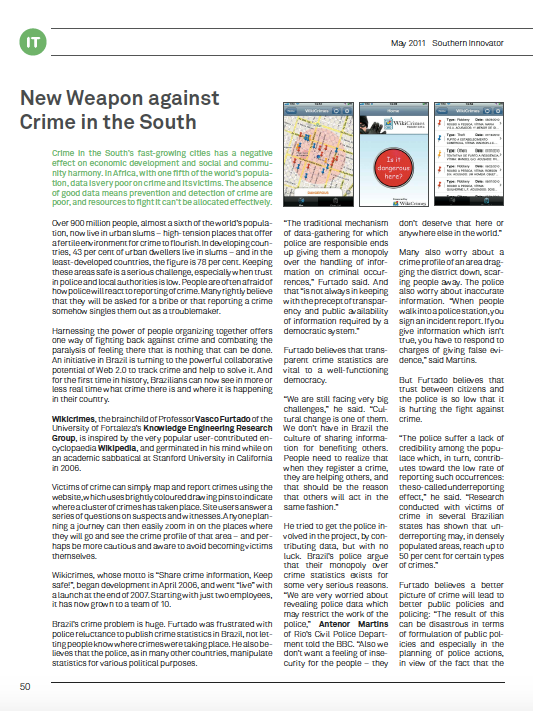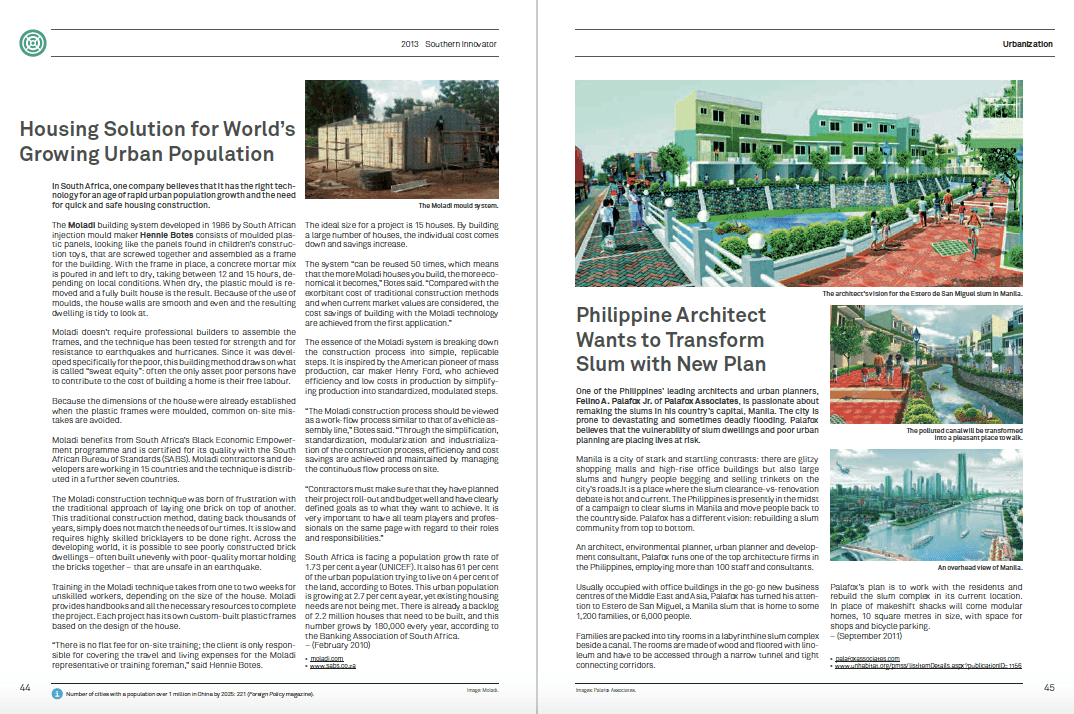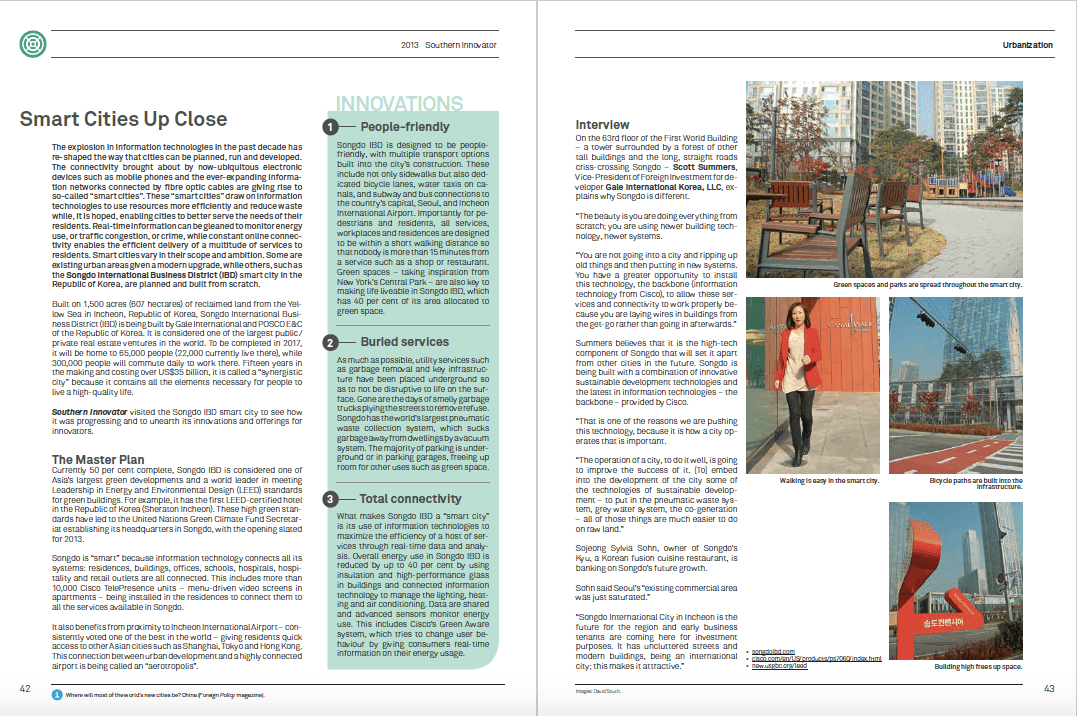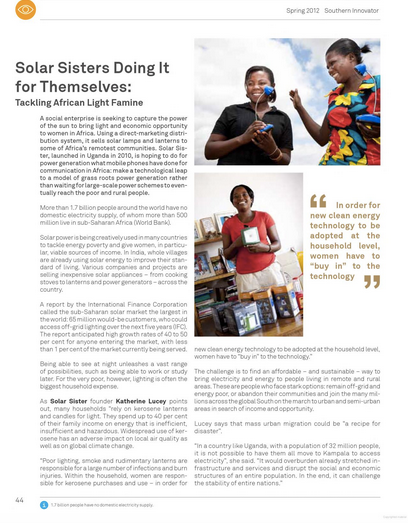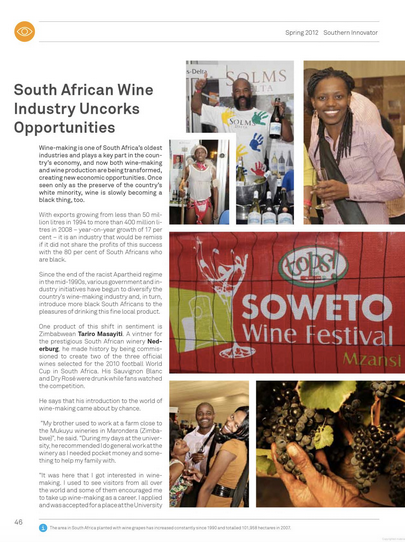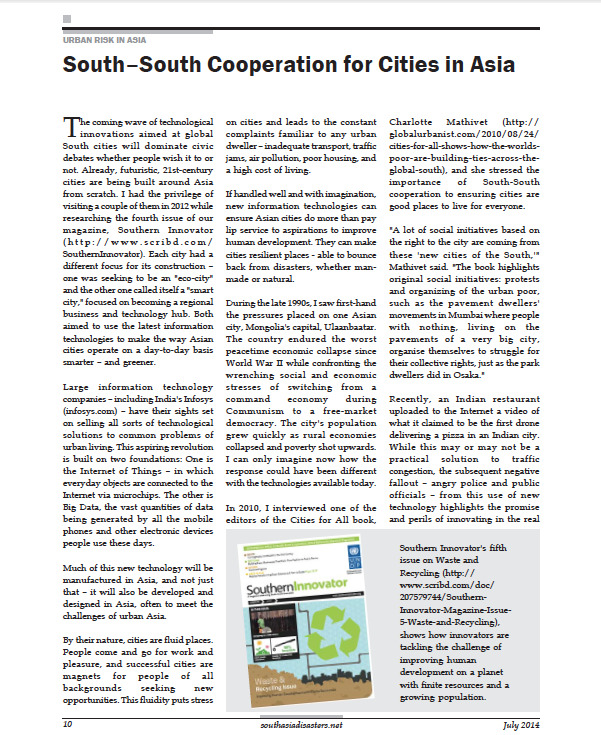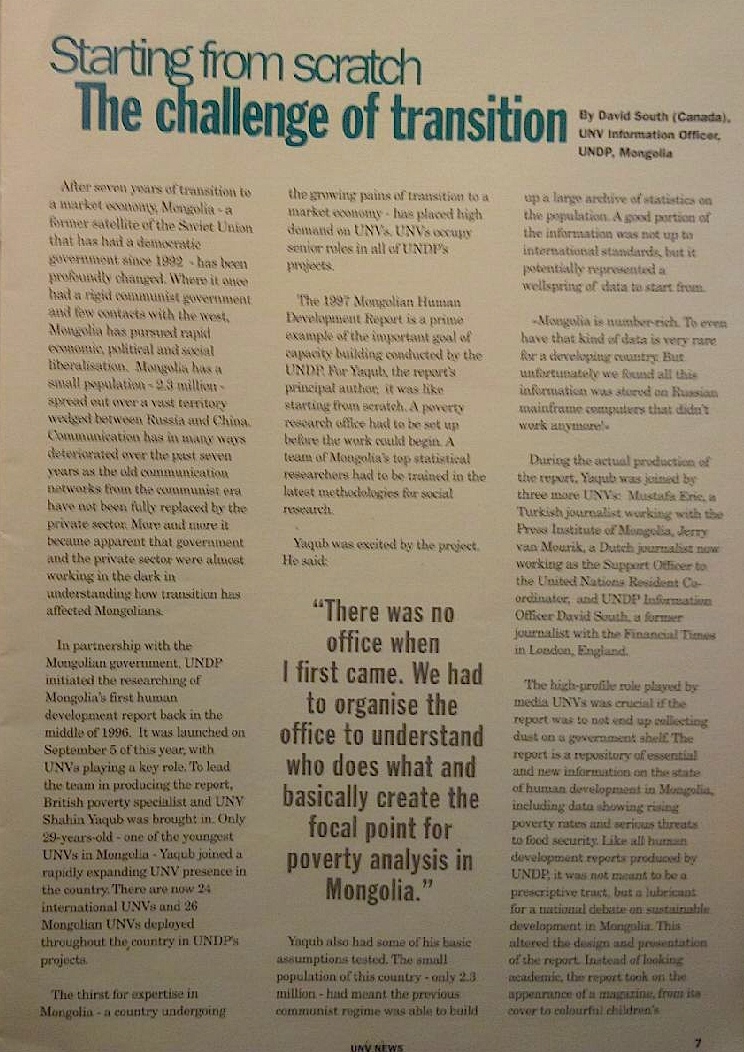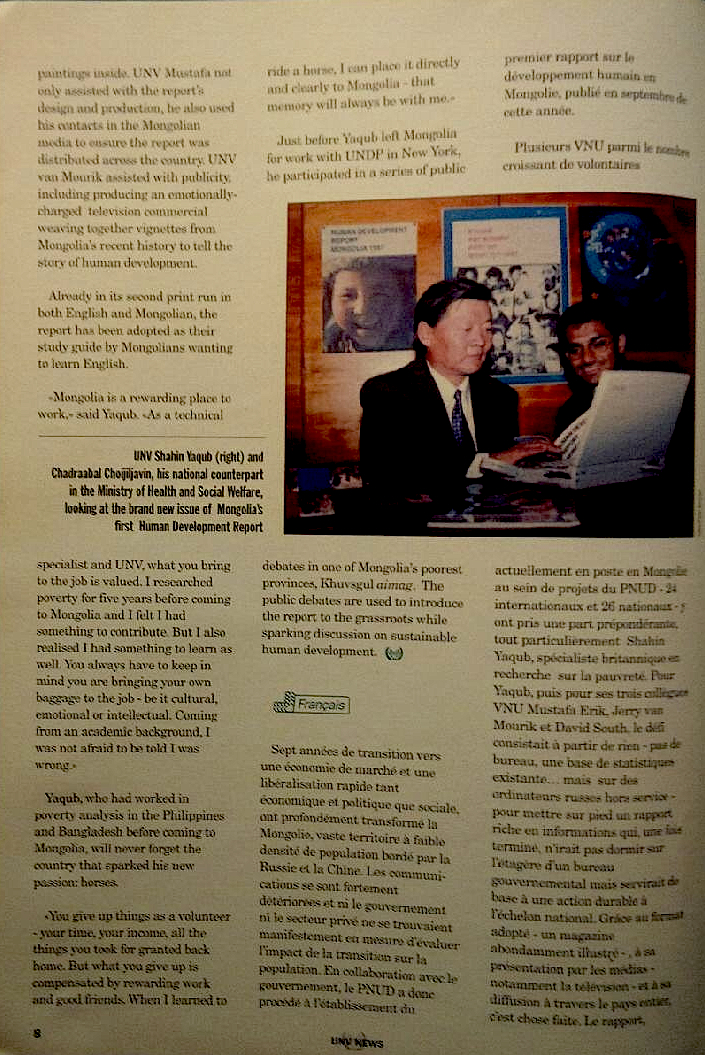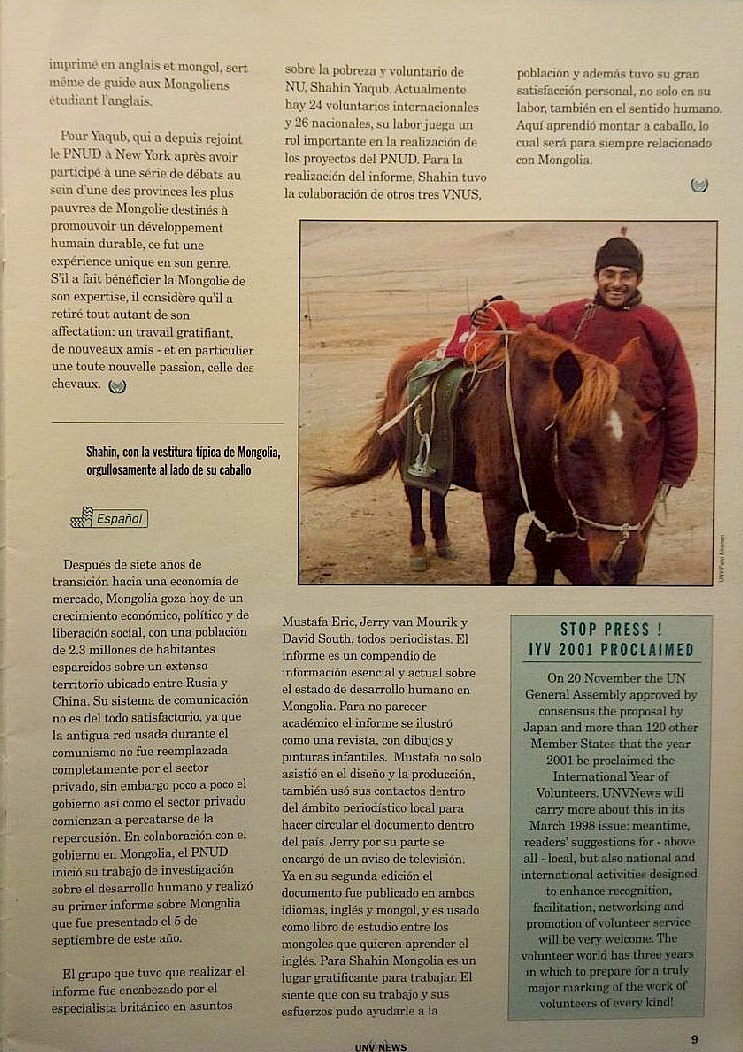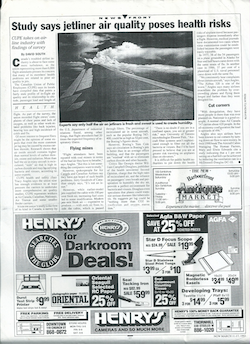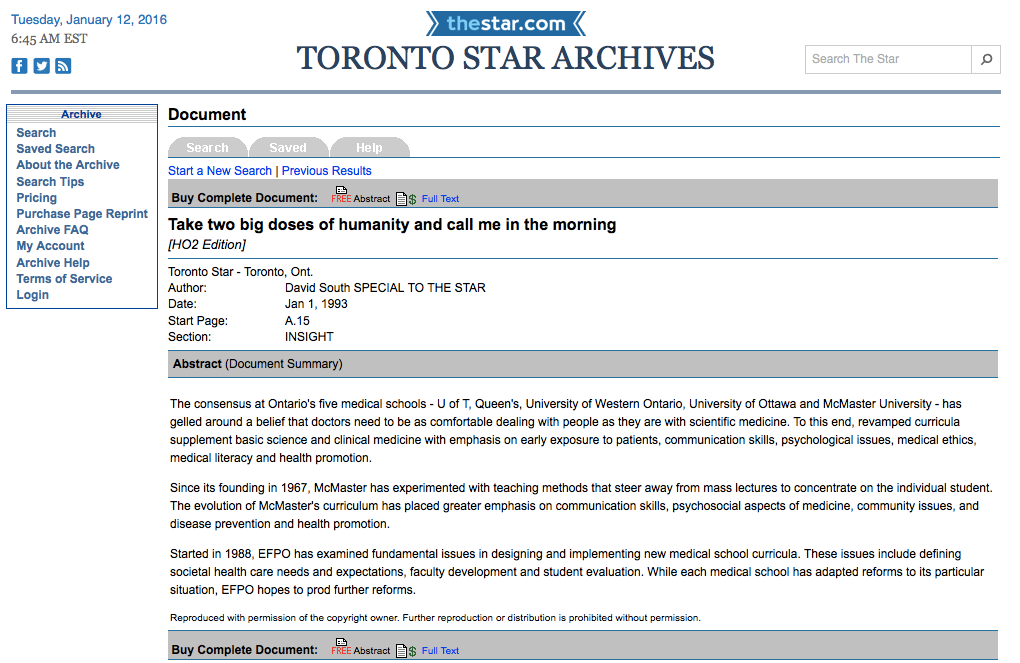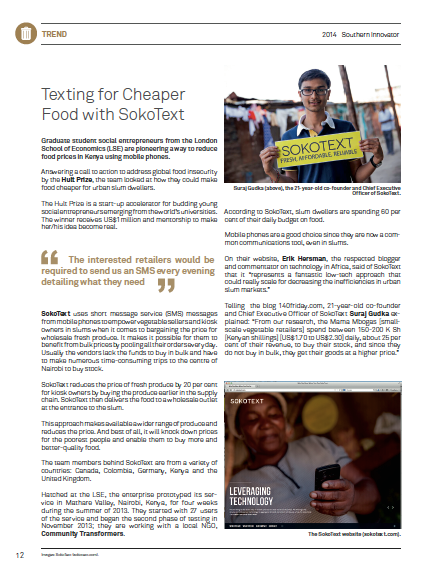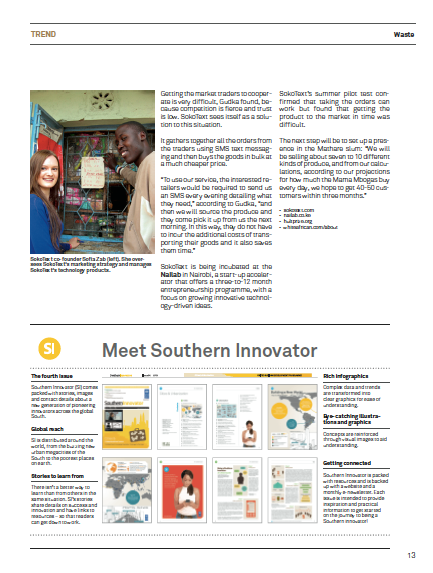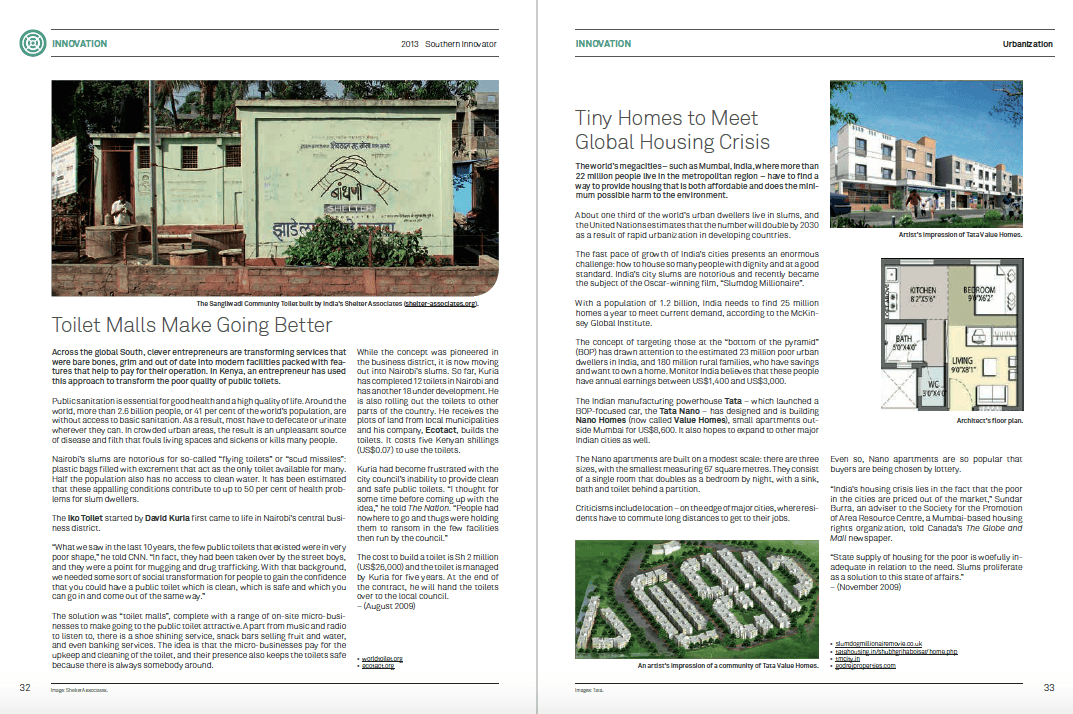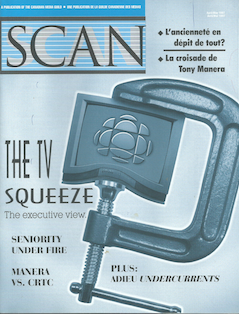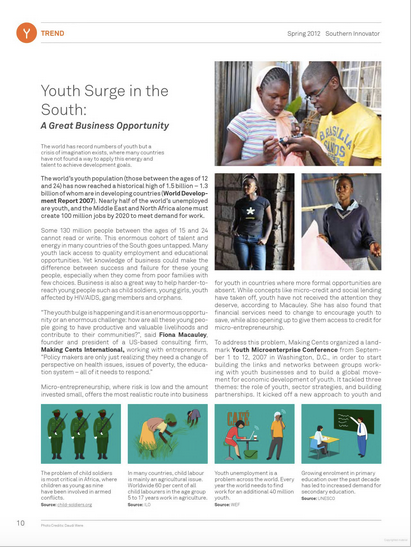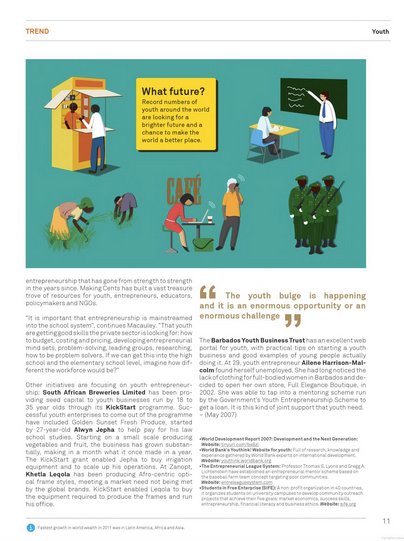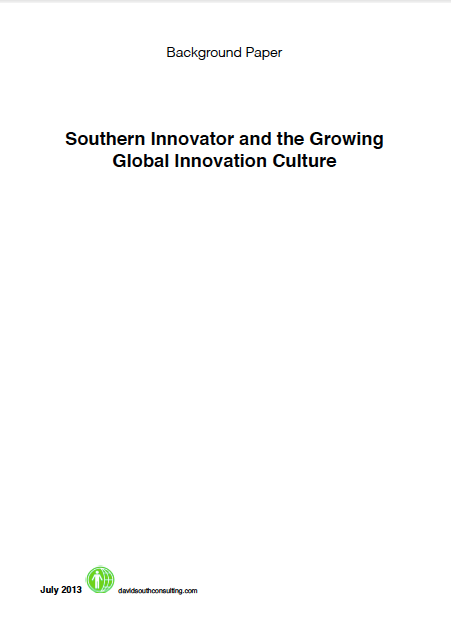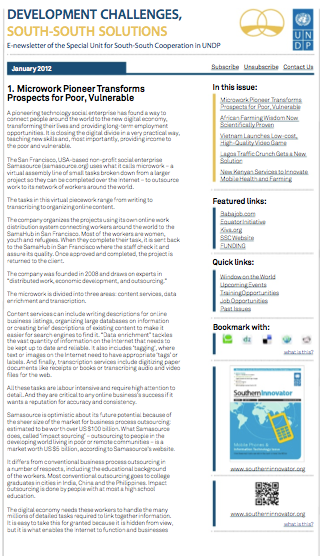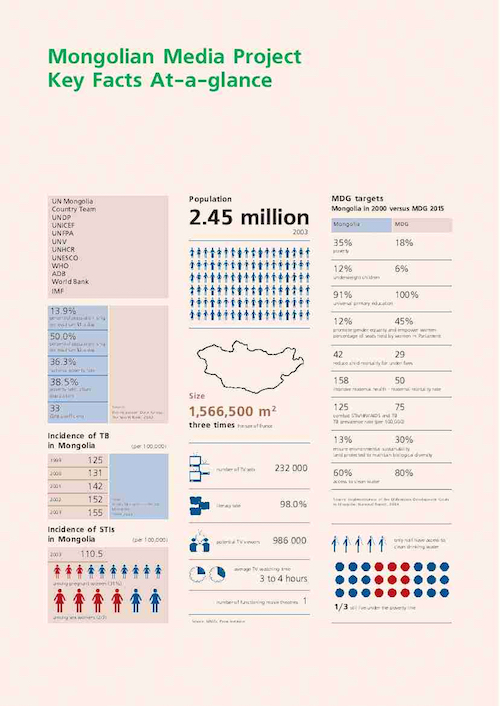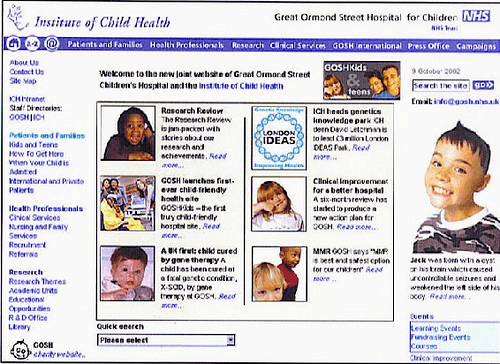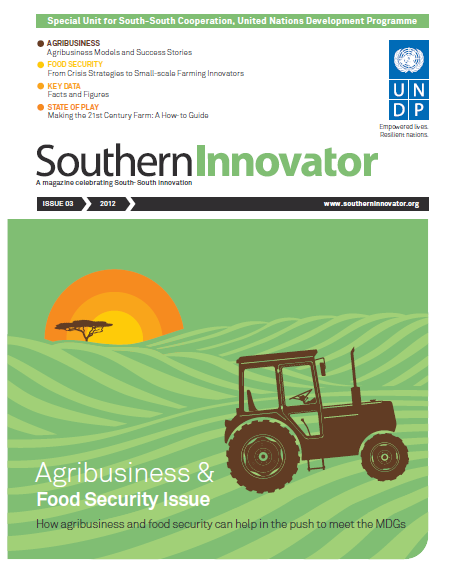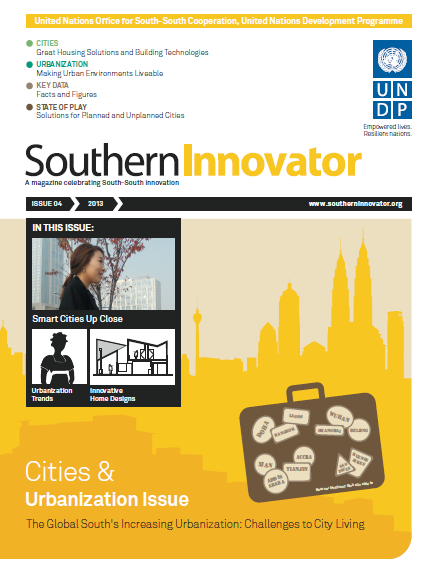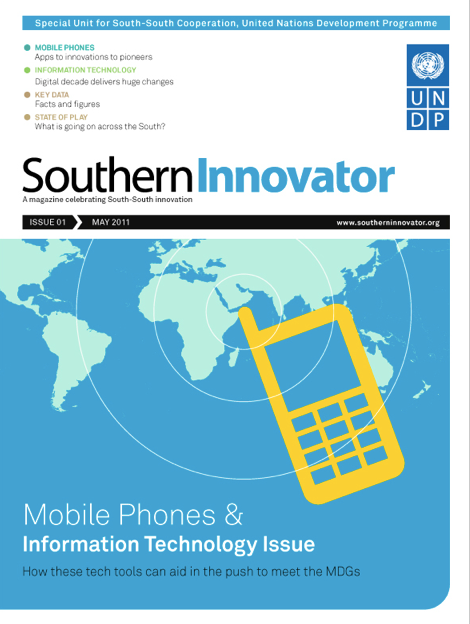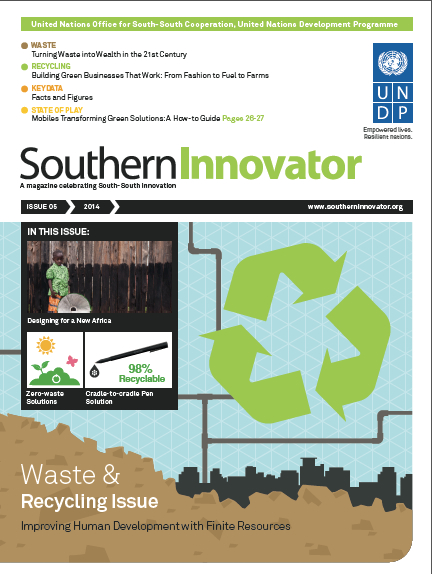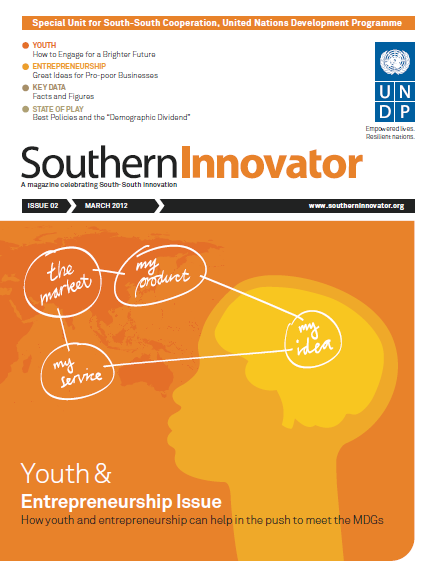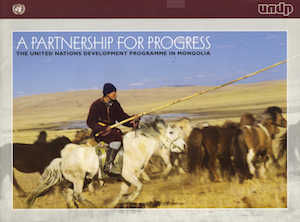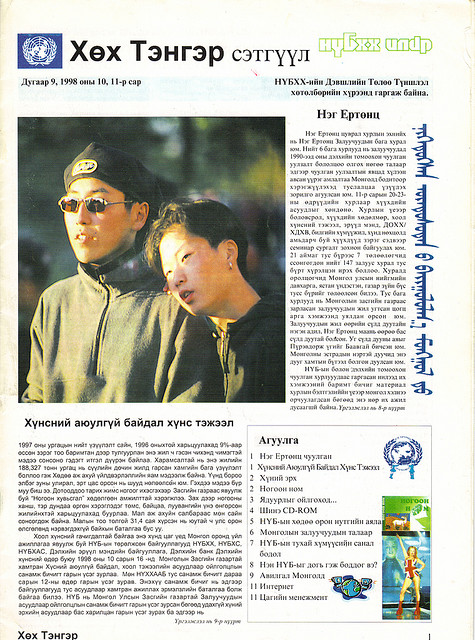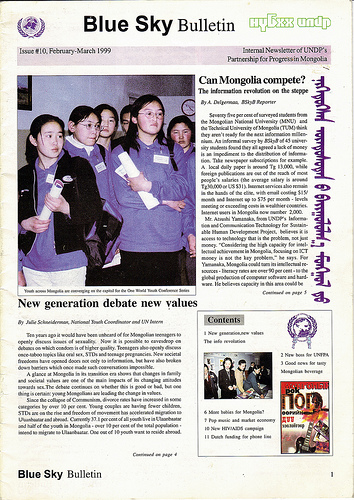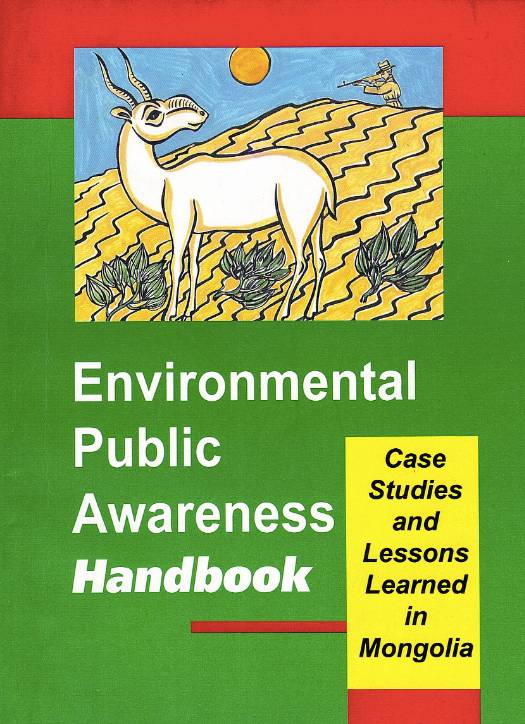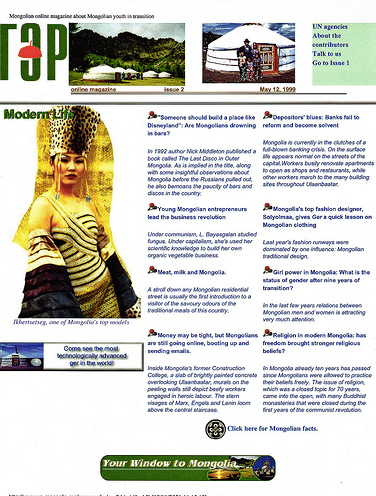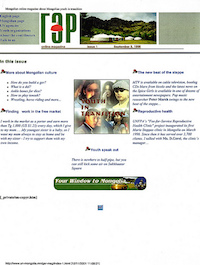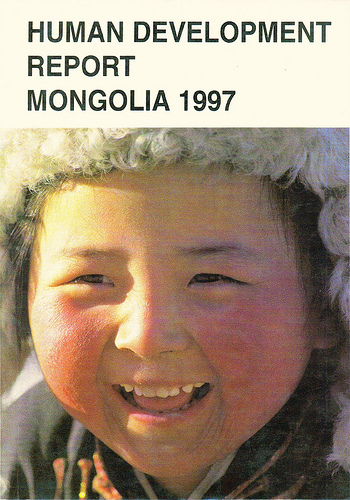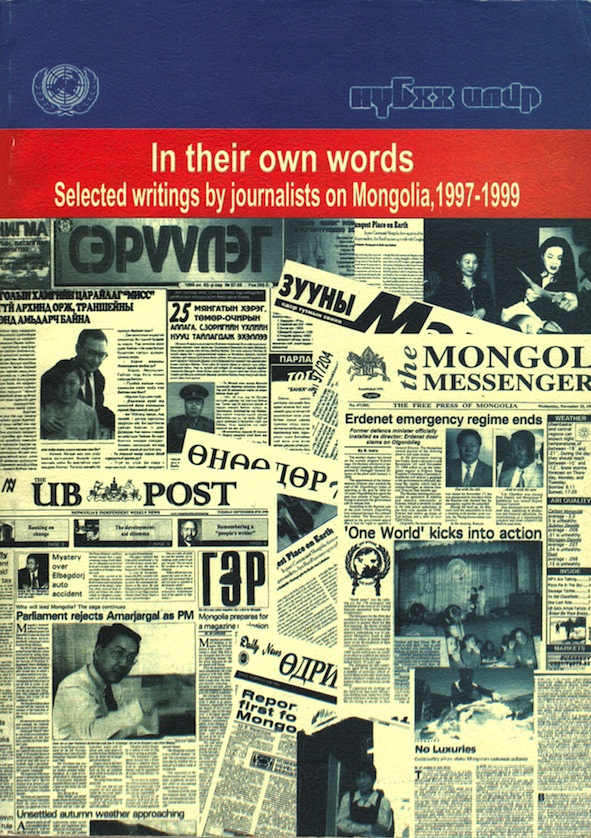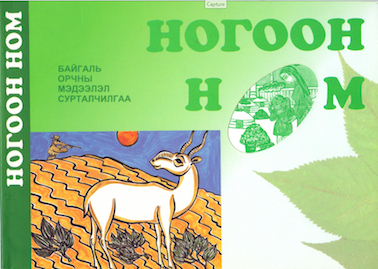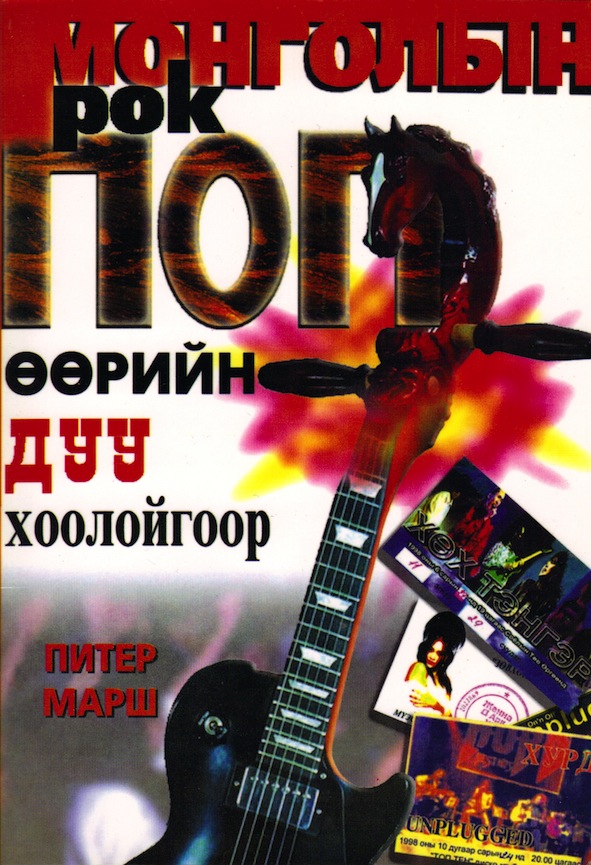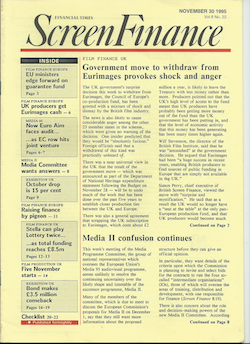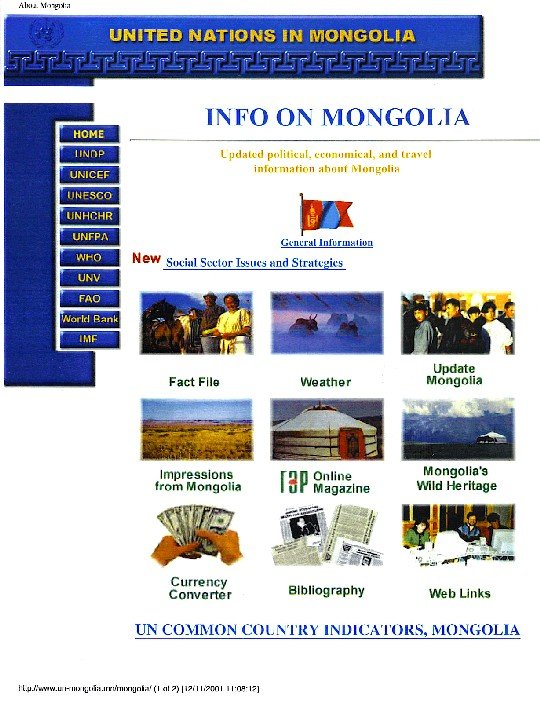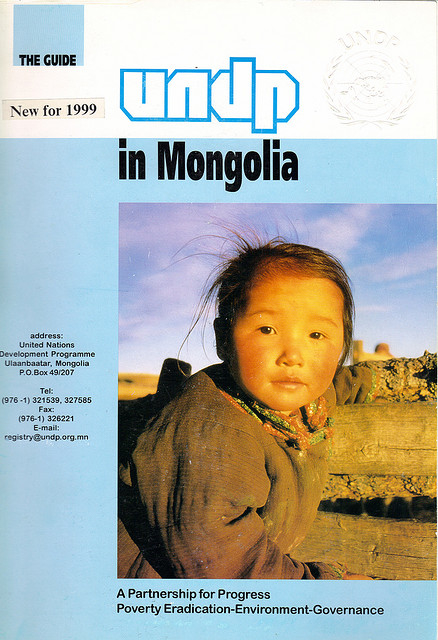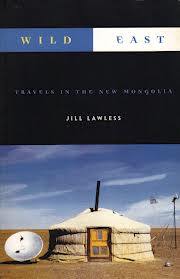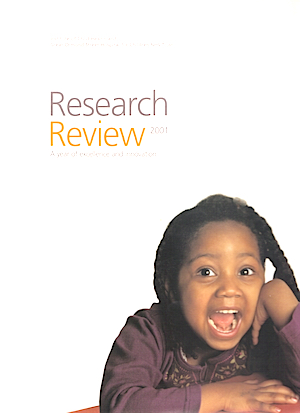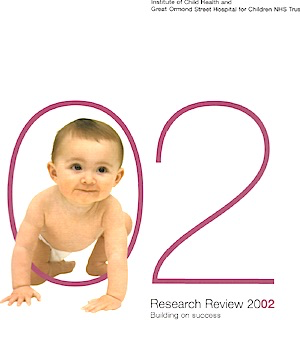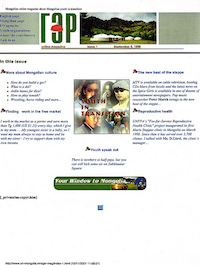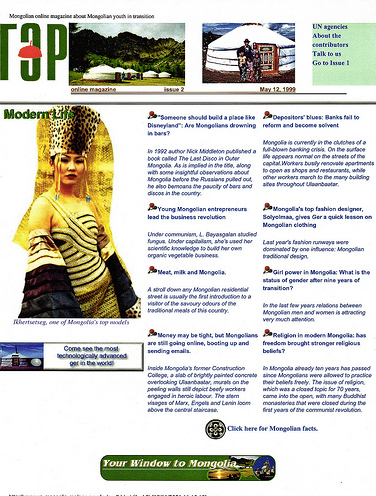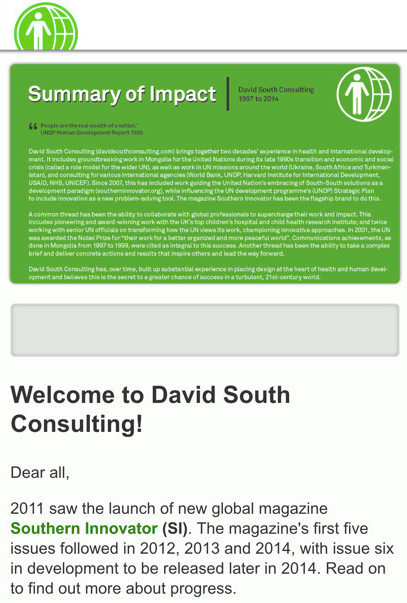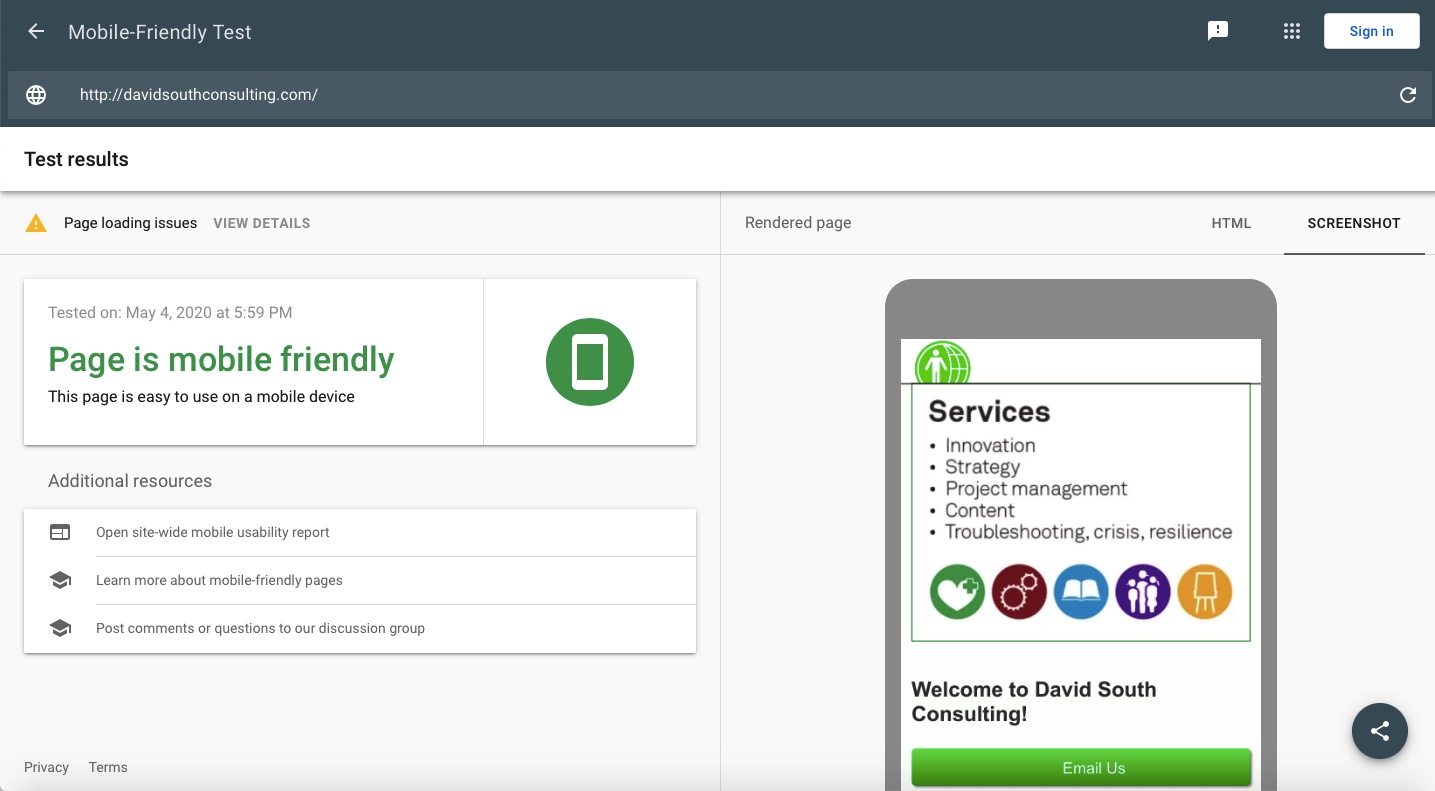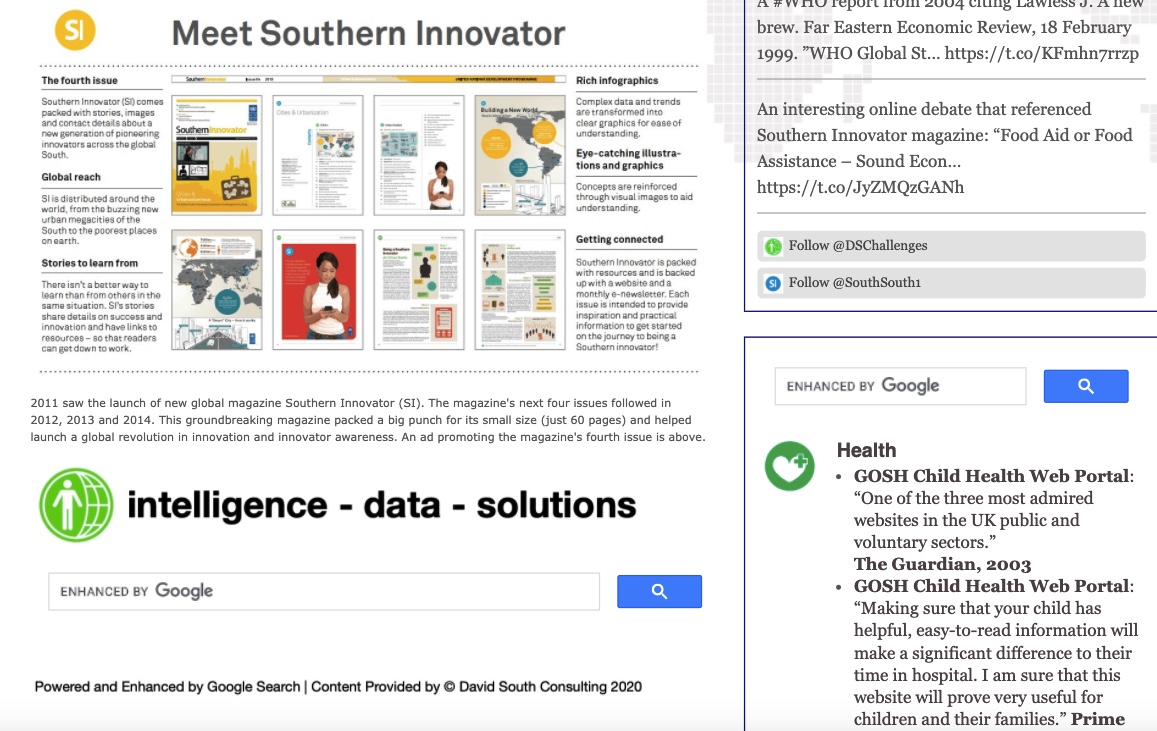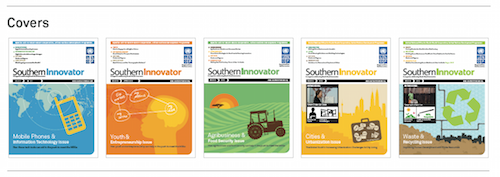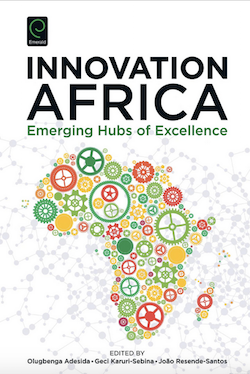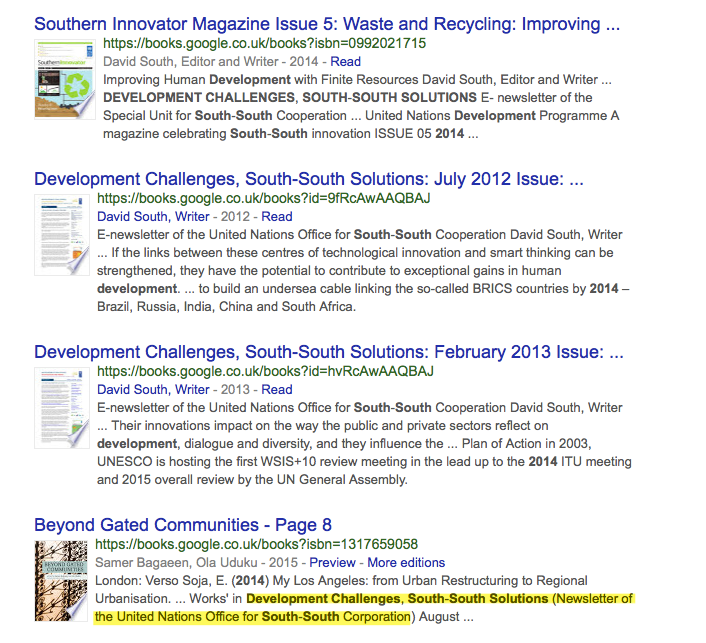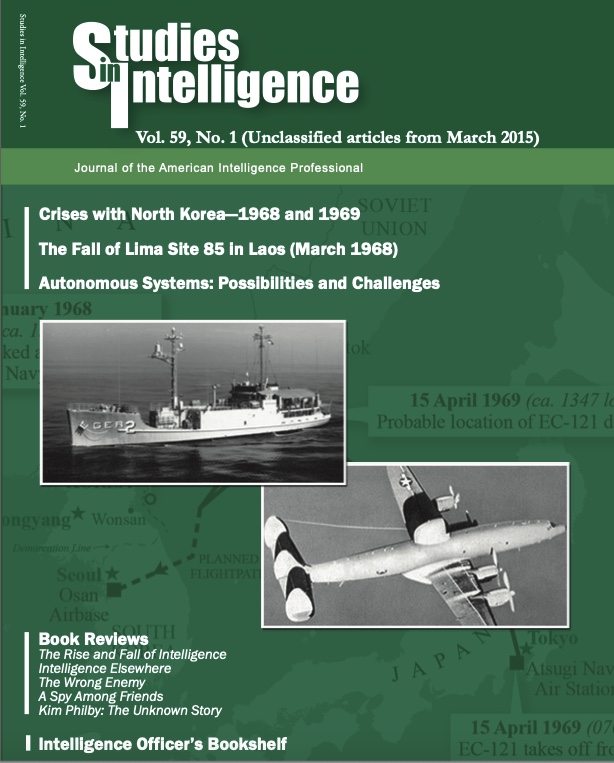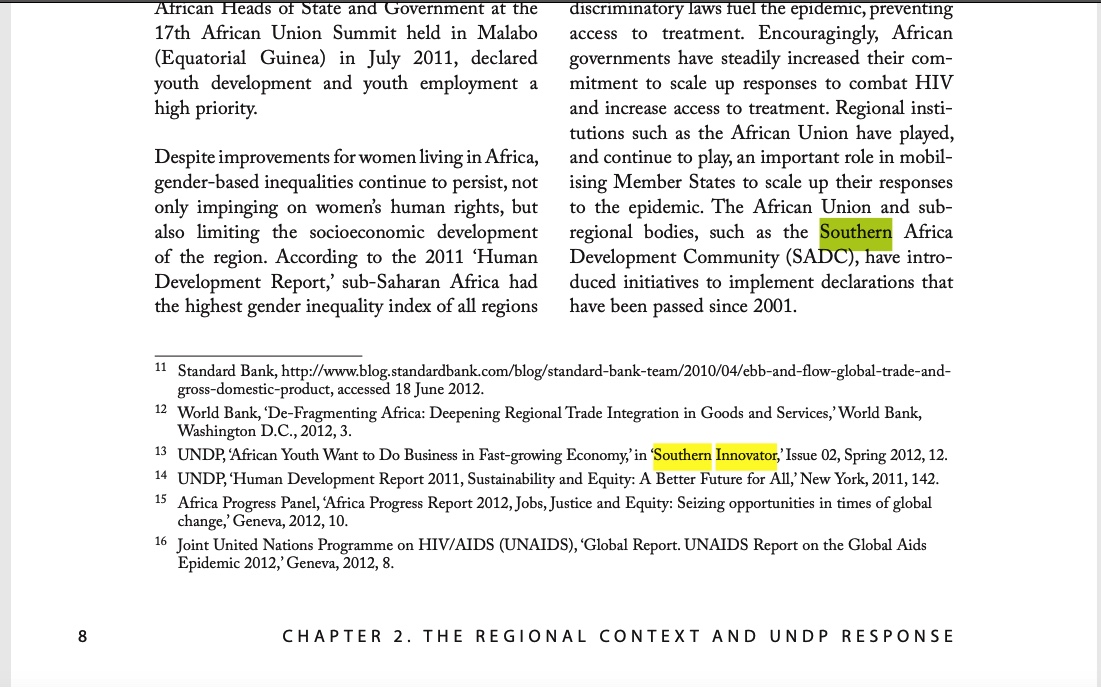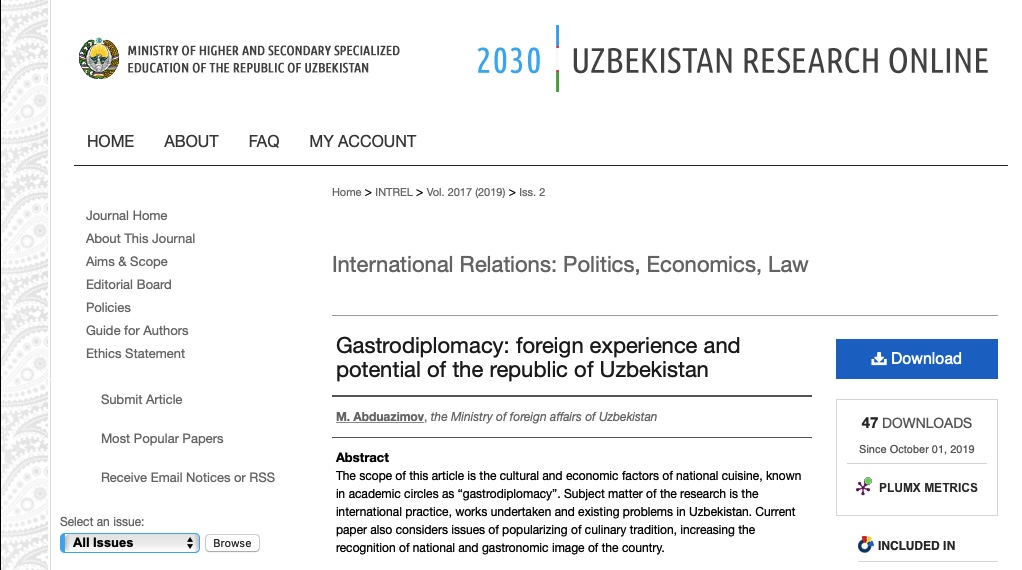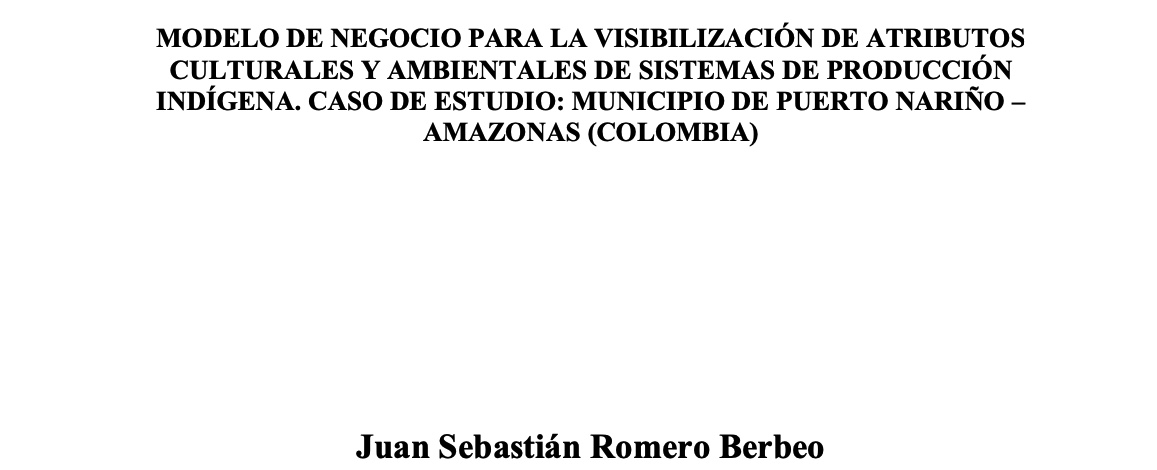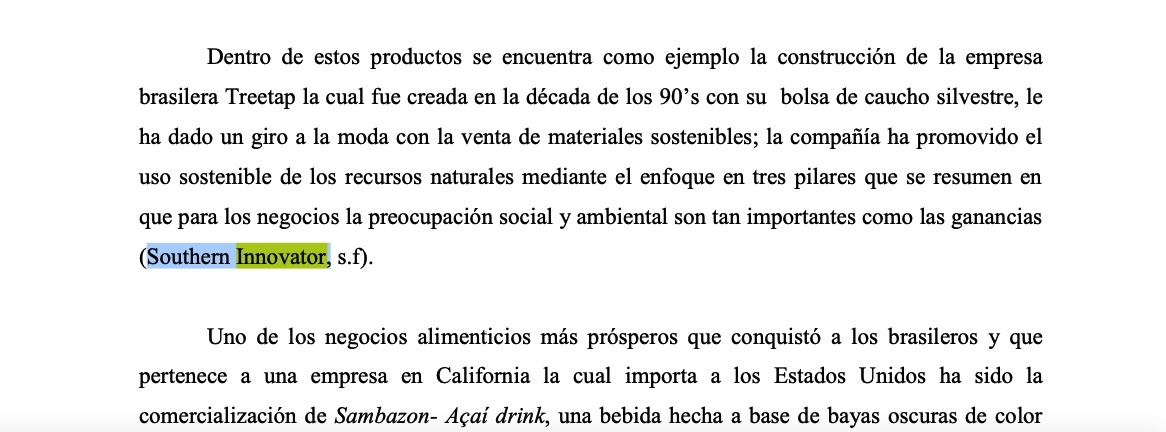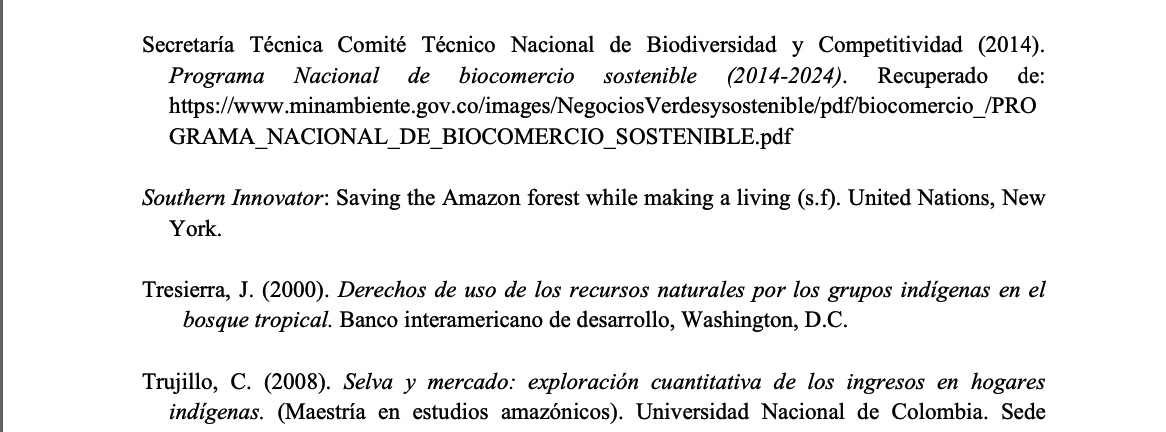David South Consulting Publications At a Glance | 18 January 2016
 Monday, January 18, 2016 at 11:16AM
Monday, January 18, 2016 at 11:16AM
Experience
I am an international development consultant with over 19 years’ experience. I specialise in media, health communications, development strategies, project management and publishing. I have led high-profile projects in Asia, Canada and the UK. This work has included a number of groundbreaking, award-winning new media projects.
United Nations Global Marketplace (ungm.org) Vendor.
Read the David South Consulting Summary of Impact here: http://books.google.co.uk/books/about?id=1FdyBgAAQBAJ&redir_esc=y
Read the Southern Innovator Summary of Impact here: https://books.google.co.uk/books?id=lK4jBgAAQBAJ&dq=southern+innovator+summary+of+impact&source=gbs_navlinks_s
Methodology
I have managed and delivered projects to tight deadlines, with extensive public scrutiny and under difficult country conditions. I keep a cool head and am a seasoned trouble-shooter.
Education
University of Toronto: BA Honours in Political Science and History
Courses
BBC: Managing Complex New Media Projects
International Health Exchange: Humanitarian Aid: Policies and Practice
Languages
English, Mongolian
Articles
Africa's Fast-growing Cities: A New Frontier of Opportunities, Southern Innovator Issue 4, 2013
African Megacity Makeovers Tackle Rising Populations, Southern Innovator Issue 4, 2013
Banning of Plastic Bags and Containers Brings New Opportunities, Southern Innovator Issue 5, 2014
Biogas Digester-in-a-Bag Brings Portability, Southern Innovator Issue 5, 2014
Colombian Architect Proving Strength and Beauty of Bamboo, Southern Innovator Issue 4, 2013
Connoisseur Chocolate from the South Gets a Higher Price, Southern Innovator Issue 3, 2012
Creating Green Fashion in China, Southern Innovator Issue 5, 2014
Debt-free Homes for the Poor, Development Challenges, South-South Solutions, January 2009
Eco-cities Up Close, Southern Innovator Issue 4, 2013
Energy-efficient Wooden Houses Are Also Earthquake Safe, Southern Innovator Issue 4, 2013
Freedom of Expression, UNV News, 5 June 1999
Growing a Southern Brand to Global Success: The Olam Story, Southern Innovator Issue 3, 2012
Housing Innovation in South's Urban Areas, Southern Innovator Issue 4, 2013
Indonesian Wooden Radio Succeeds with Good Design, Southern Innovator Issue 5, 2014
Innovation: Cairo's Green Technology Pioneers, Southern Innovator Issue 5, 2014
Innovations in Green Economy: Top Three Agenda, Southasiadisasters.net, December 2013
Insects Can Help in Food Crisis, Southern Innovator Issue 3, 2012
Lamas Against AIDS, UB Post (Ulaanbaatar, Mongolia), 5 November 1997
Lima to Delhi: What can be Learned on Urban Resilience?, Southasiadisasters.net, March 2015
Making the World a Better Place for Southern Projects, Southern Innovator Issue 1, 2011
Model Cities across the South Challenge Old Ways, Southern Innovator Issue 4, 2013
Mongolia Looks to Become Asian IT Leader, Southern Innovator Issue 1, 2011
A New House Kit for Slum Dwellers that is Safe and Easy to Build, Southern Innovator Issue 4, 2013
New Weapon Against Crime in the South, Southern Innovator Issue 1, 2011
Philippine Architect Wants to Transform Slum with New Plan, Southern Innovator Issue 4, 2013
Philippine Conference Tackles Asia's AIDS Crisis, UB Post (Ulaanbaatar, Mongolia), 28 October 1997
Safety at Stake, Annex Gleaner (Toronto, Canada), February 1997
Smart Cities Up Close, Southern Innovator Issue 4, 2013
South African Wine Industry Uncorks Opportunities, Southern Innovator Issue 2, 2012
South-South Cooperation for Cities in Asia, Southasiadisasters.net, July 2014
Starting from Scratch: The Challenge of Transition, UNV News, November 1997
Take Two Big Doses of Humanity and Call Me in the Morning, The Toronto Star, 1 January 1993
Taking Medicine to the People, Canadian Living, January 1993
Texting for Cheaper Food with SokoText, Southern Innovator Issue 5, 2014
Tiny Homes to Meet Global Housing Crisis, Southern Innovator Issue 4, 2013
2011 Trends for the South, David South Consulting, January 2011
Urban Farming to Tackle Global Food Crisis, Southern Innovator Issue 3, 2012
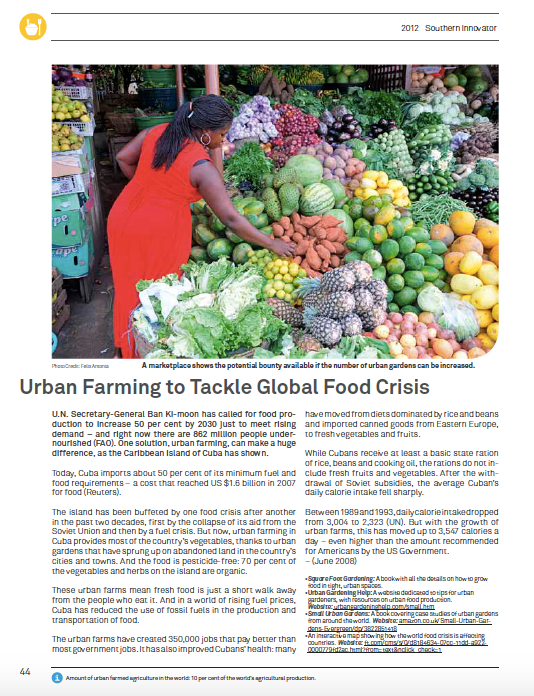
Youth Surge in the South: A Great Business Opportunity, Southern Innovator Issue 2, 2012
Papers
Publications
2000 to Present
Evaluation of the Millennium Development Goals Education Media Project, 2005, UNDP Mongolia
A Marketing and e-Marketing Strategy – the New SASVO, 2004-2005, UNDP South Africa
Southern Innovator Magazine: Agribusiness and Food Security Issue E-Version (ISSN 2227-0523)
Southern Innovator Magazine: Cities and Urbanization Issue (ISBN 978-0-9920217-0-2) (ISSN 2222-9280)
Southern Innovator Magazine: Mobile Phones and Information Technology Issue (ISSN 2222-9280)
Southern Innovator Magazine: Waste and Recycling Issue (ISBN 978-0-9920217-1-9) (ISSN 2222-9280)
Southern Innovator Magazine: Youth and Entrepreneurship Issue E-Version (ISSN 2227-0523)
UNDAF Annual Review 2005: A Partnership Between the Government of Turkmenistan and the United Nations Country Team
UNDP Mongolia Partnership for Progress 1997 to 1999 Key Documents, 2015, David South Consulting
1990 to 2000
Blue Sky Bulletin Issue Number 1
Blue Sky Bulletin Issue Number 2
Blue Sky Bulletin Issue Number 3
Blue Sky Bulletin Issue Number 4
Blue Sky Bulletin Issue Number 5
Blue Sky Bulletin Issue Number 6
Blue Sky Bulletin Issue Number 7
Blue Sky Bulletin Issue Number 8
Blue Sky Bulletin Issue Number 9
Blue Sky Bulletin Issue Number 10
Ger Magazine, 1998-1999, UNDP Mongolia Communications Office
Ger Magazine: Modern Life Issue
Hannah Institute for the History of Medicine Newsletter, 1992-1994
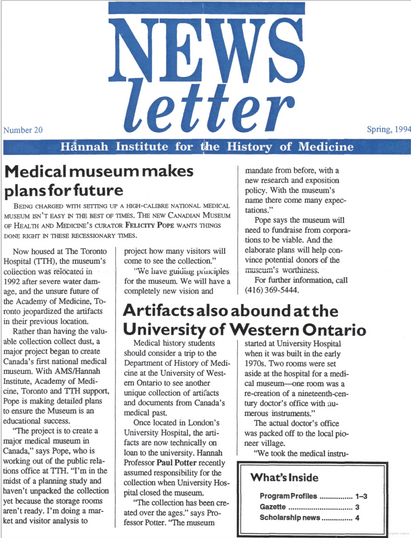
Human Development Report Mongolia 1997
In Their Own Words: Selected Writings by Journalists on Mongolia, 1997-1999 (ISBN 99929-5-043-9)
Mongolian AIDS Bulletin, 1997, UNDP Mongolia Communications Office
Mongolian Rock and Pop Book (ISBN 99929-5-018-8)
Mongolia Update - Coverage of 1998 Political Changes
Mongolia Update 1997
Mongolia Update 1999
New Media Markets, 1995, Financial Times Newsletters
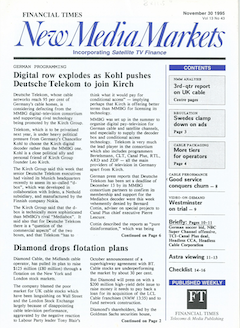
Partnership for Progress (UNDP Mongolia)
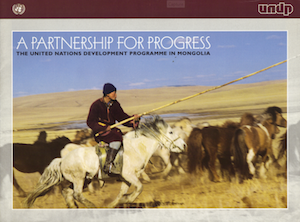 Peril and Promise: Higher Education in Developing Countries, 1999, World Bank/UNESCO Task Force on Higher Education (for River Path Associates)
Peril and Promise: Higher Education in Developing Countries, 1999, World Bank/UNESCO Task Force on Higher Education (for River Path Associates)
Screen Finance, 1995, Financial Times Newsletters
UN Mongolia Annual Report, 1997-1998, UNDP Mongolia Communications Office
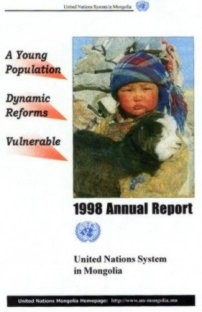
UNDP Mongolia Online Development Portal, 1997-1999, UNDP Mongolia Communications Office
UNDP in Mongolia: The Guide, 1997-1999, UNDP Mongolia Communications Office
Citations
Mongolian Rock and Pop: In Our Own Voice (in Mongolian), ISBN 99929-5-018-8
Wild East: Travels in the New Mongolia by Jill Lawless, ECW Press, 2000, ISBN 1-55022-434-4 (www.wildeast.ca)
A Complete Guide on Celebrations, Festivals and Holidays around the World by Sarah Whelan, Asteroid Content, 2015
Gale Directory of Publications and Broadcast Media by Jeff Summer, Gale Group, 2001
Mongol Survey, Issue 8, The Society, 2001
Nations in Transition: Mongolia by Jennifer L. Hanson, Infobase Publishing, 2003
Teen Life in Asia by Judith J. Slater, Greenwood Publishing Group, 2004
GOSH Child Health Portal Phase 1a by David South, 2003
GOSH Child Health Portal Phase 1b by David South, 2003
GOSH Child Health Portal Phase 2a by David South, 2003
GOSH Child Health Portal Phase 2b by David South, 2003
GOSH Child Health Portal Phase 3 by David South, 2003
GOSH Project Launch Brochure and Screen Grabs, 2001-2003 by David South, 2003
The Great Ormond Street Hospital Manual of Children's Nursing Practices by Susan Macqueen, Elizabeth Bruce and Faith Gibson, John Wiley & Sons, 2012
Help! My Child's in Hospital by Becky Wauchope, Marbec Family Trust, 2012
Oxford Desk Reference: Nephrology by Jonathan Barratt, Peter Topham and Kevin P. G. Harris, Oxford University Press, 2008
Research Review 2001: A Year of Excellence and Innovation, Institute of Child Health and Great Ormond Street Hospital for Children NHS Trust, 2001
Human Development Report Mongolia 1997
 David South,
David South,  Internet,
Internet,  Southern Innovator,
Southern Innovator,  books,
books,  citations,
citations,  david south consulting,
david south consulting,  davidsouthconsulting,
davidsouthconsulting,  magazines,
magazines,  online,
online,  portal,
portal,  publications,
publications,  websites in
websites in  David South Consulting,
David South Consulting,  GSSD Expo,
GSSD Expo,  Geopolitics,
Geopolitics,  Health and Human Development,
Health and Human Development,  International Development,
International Development,  Millennium Development Goals,
Millennium Development Goals,  Mobile Phones and Information Technology,
Mobile Phones and Information Technology,  Southern Innovator
Southern Innovator 